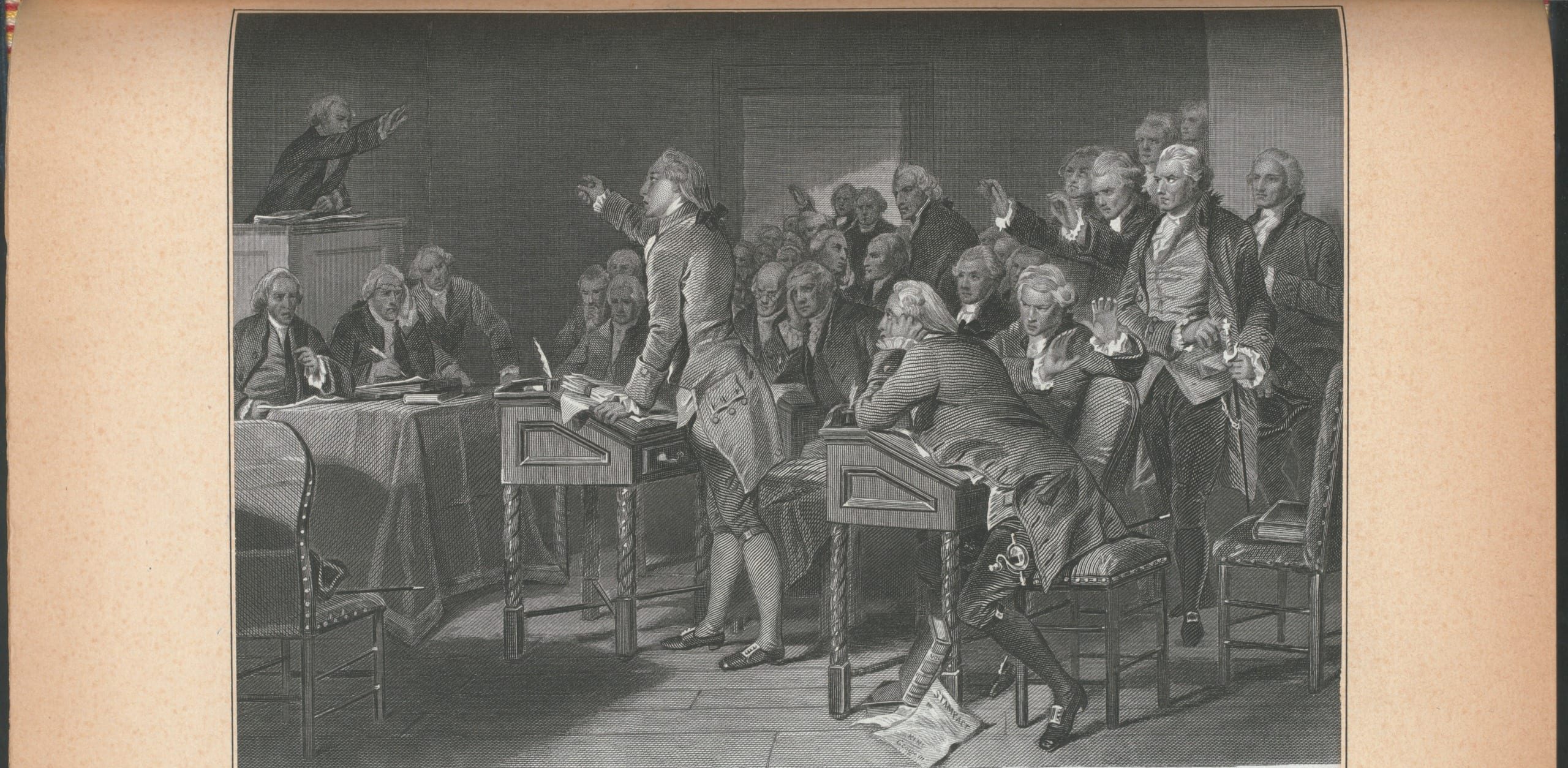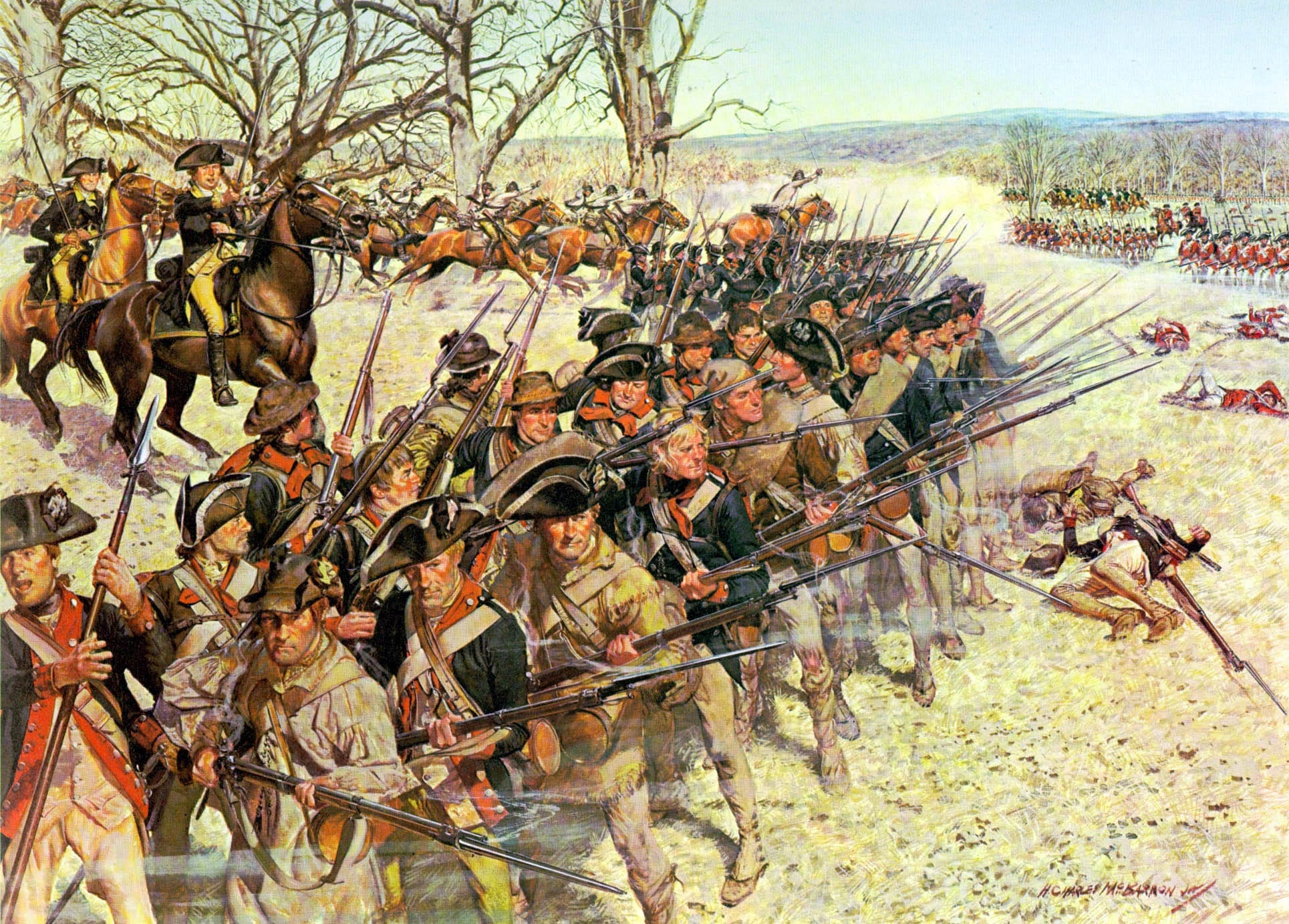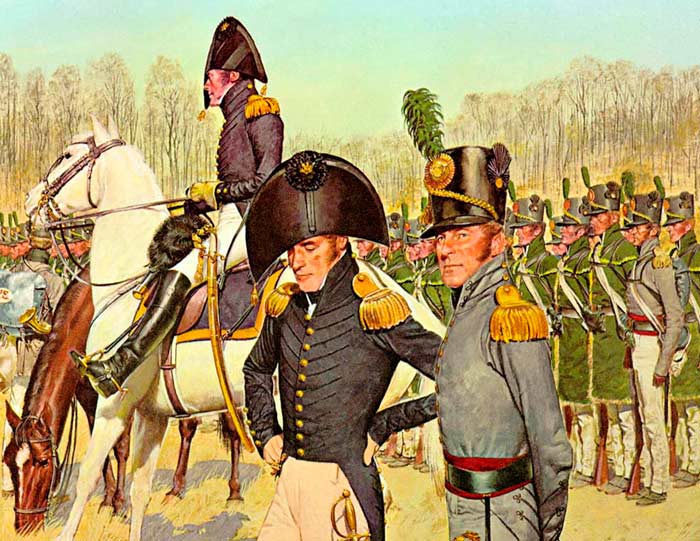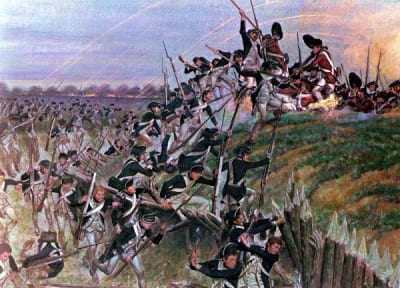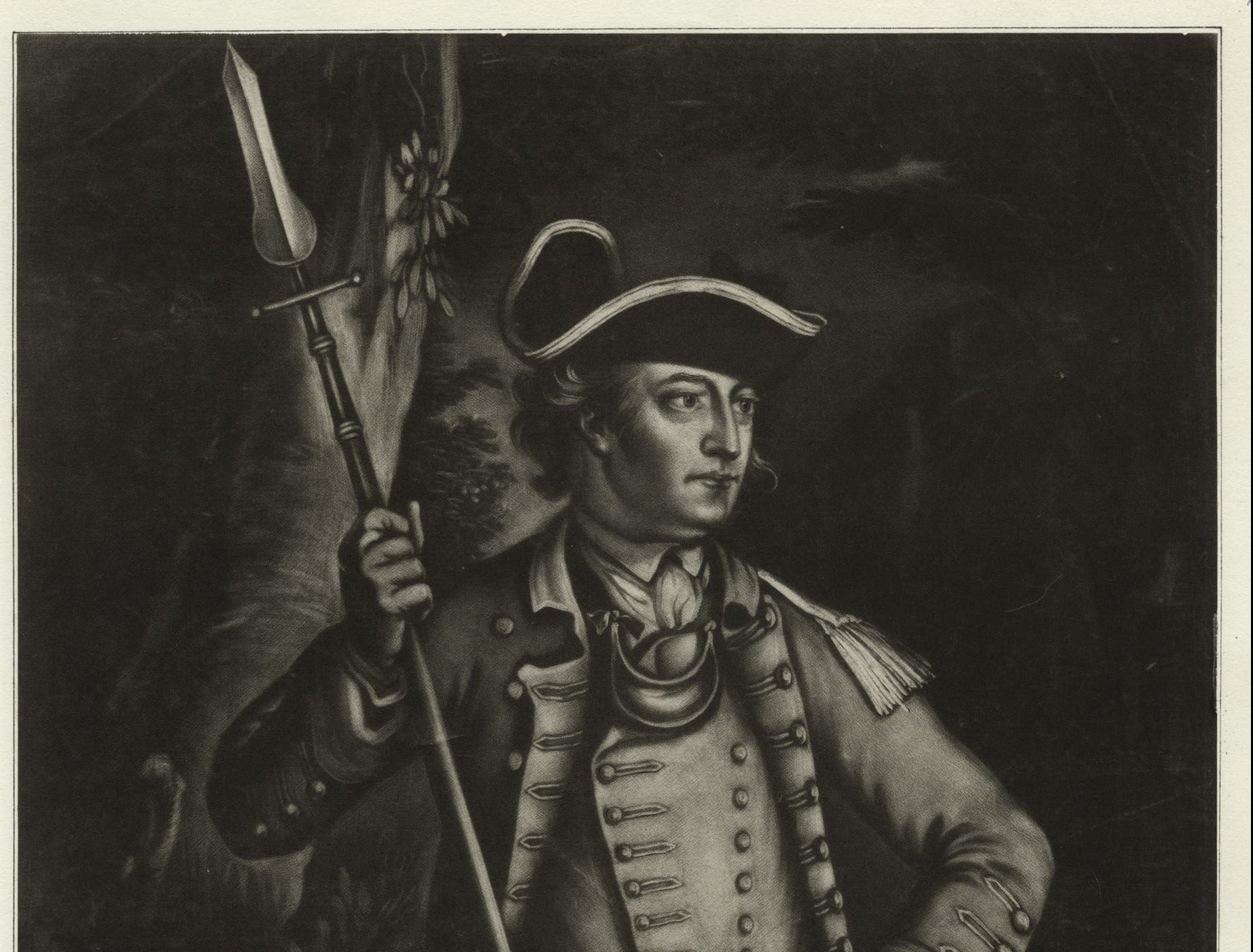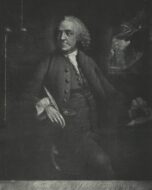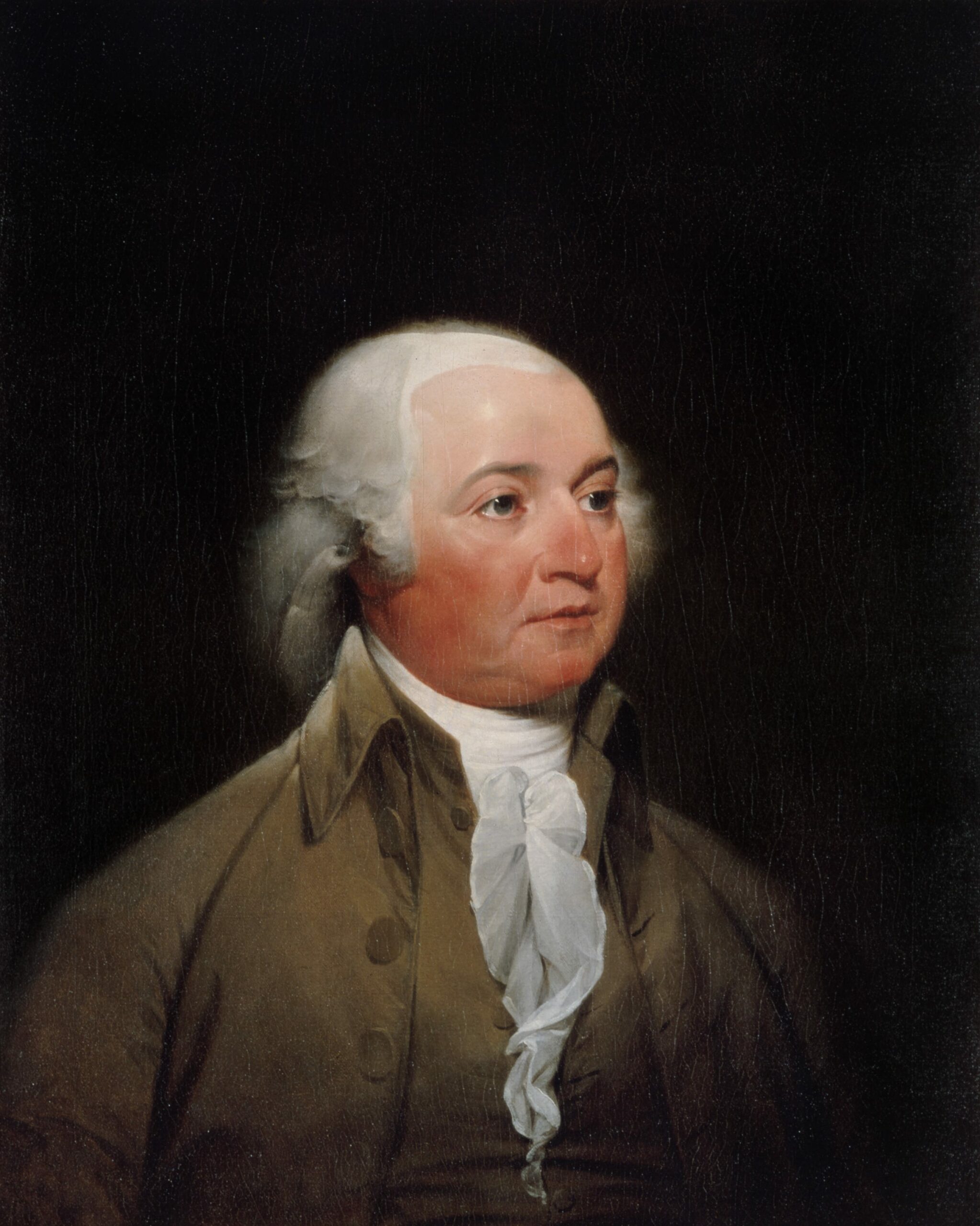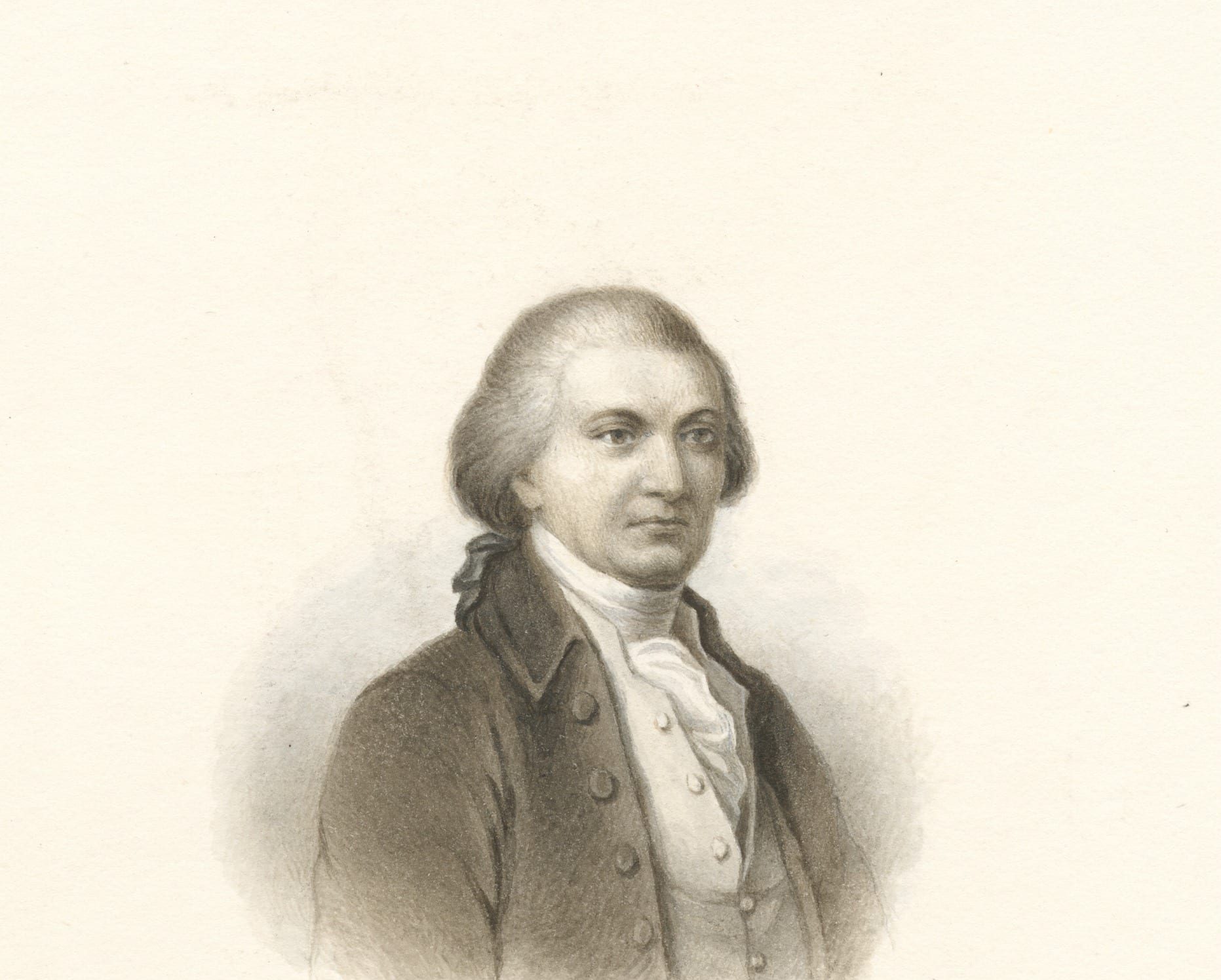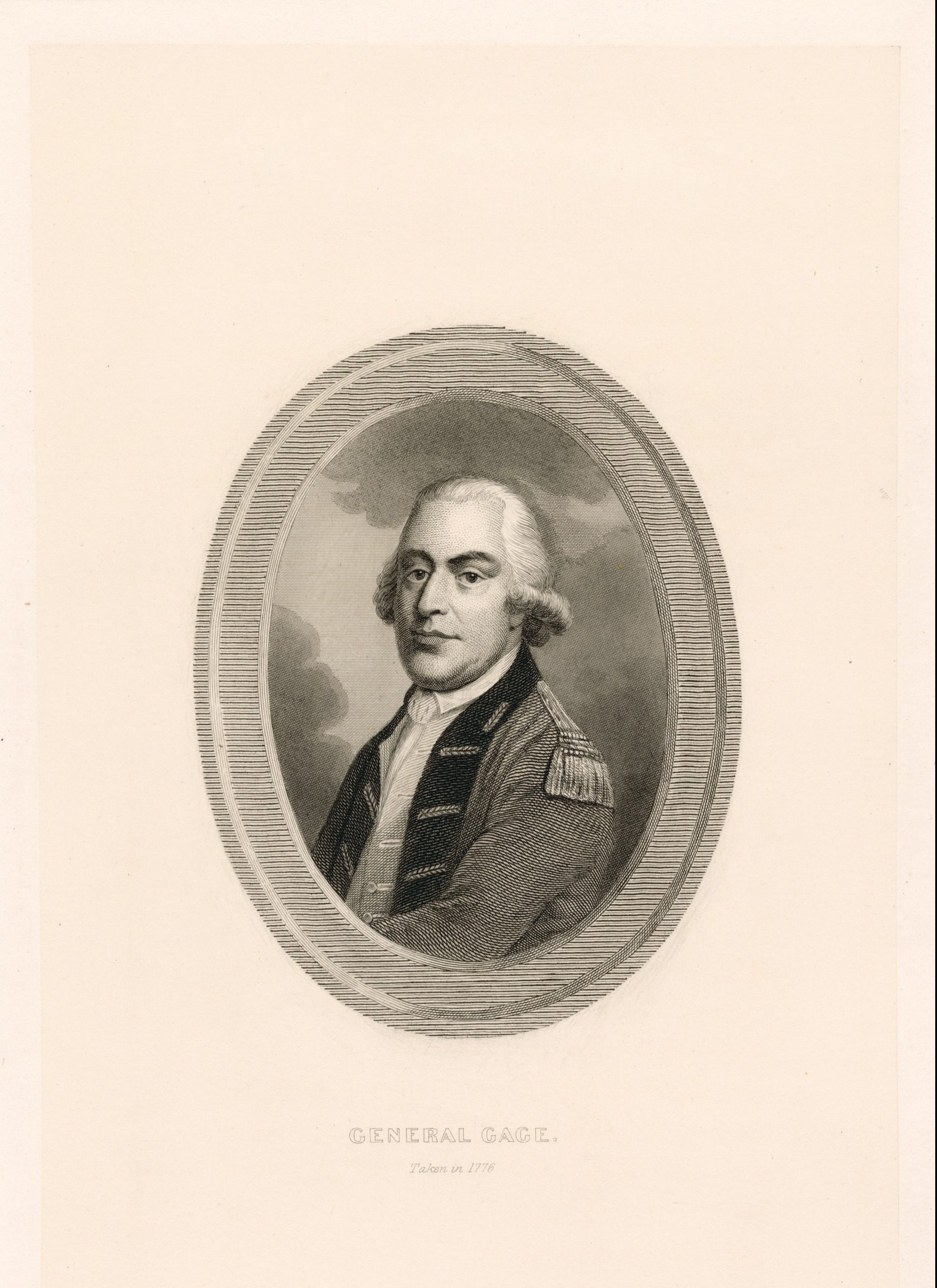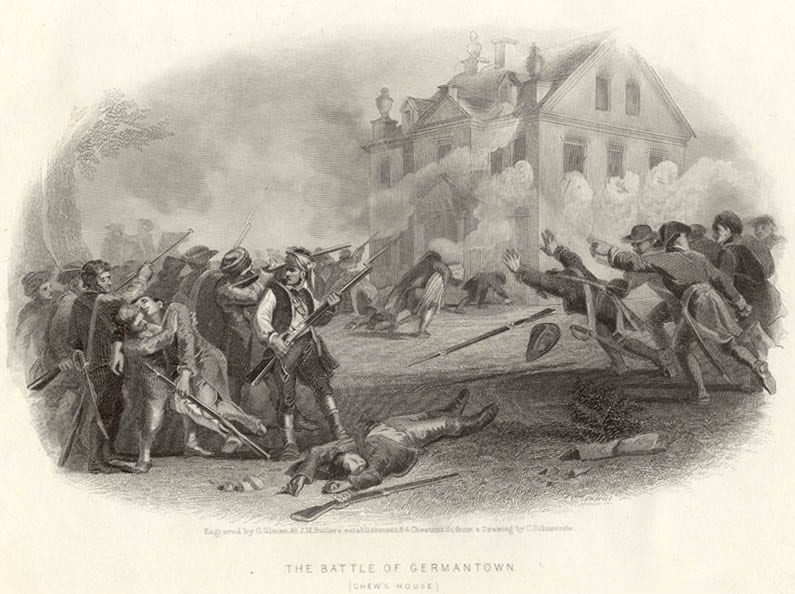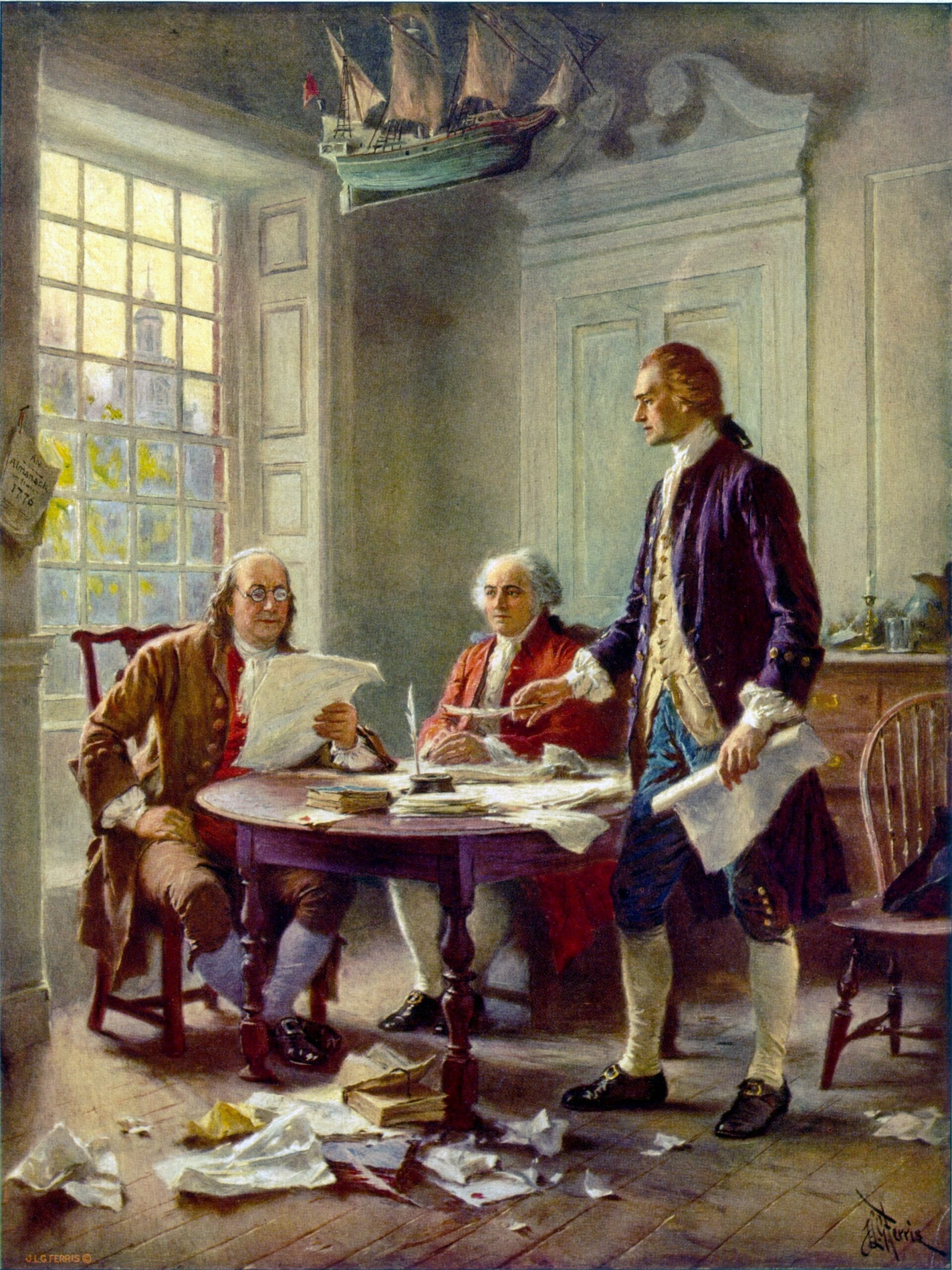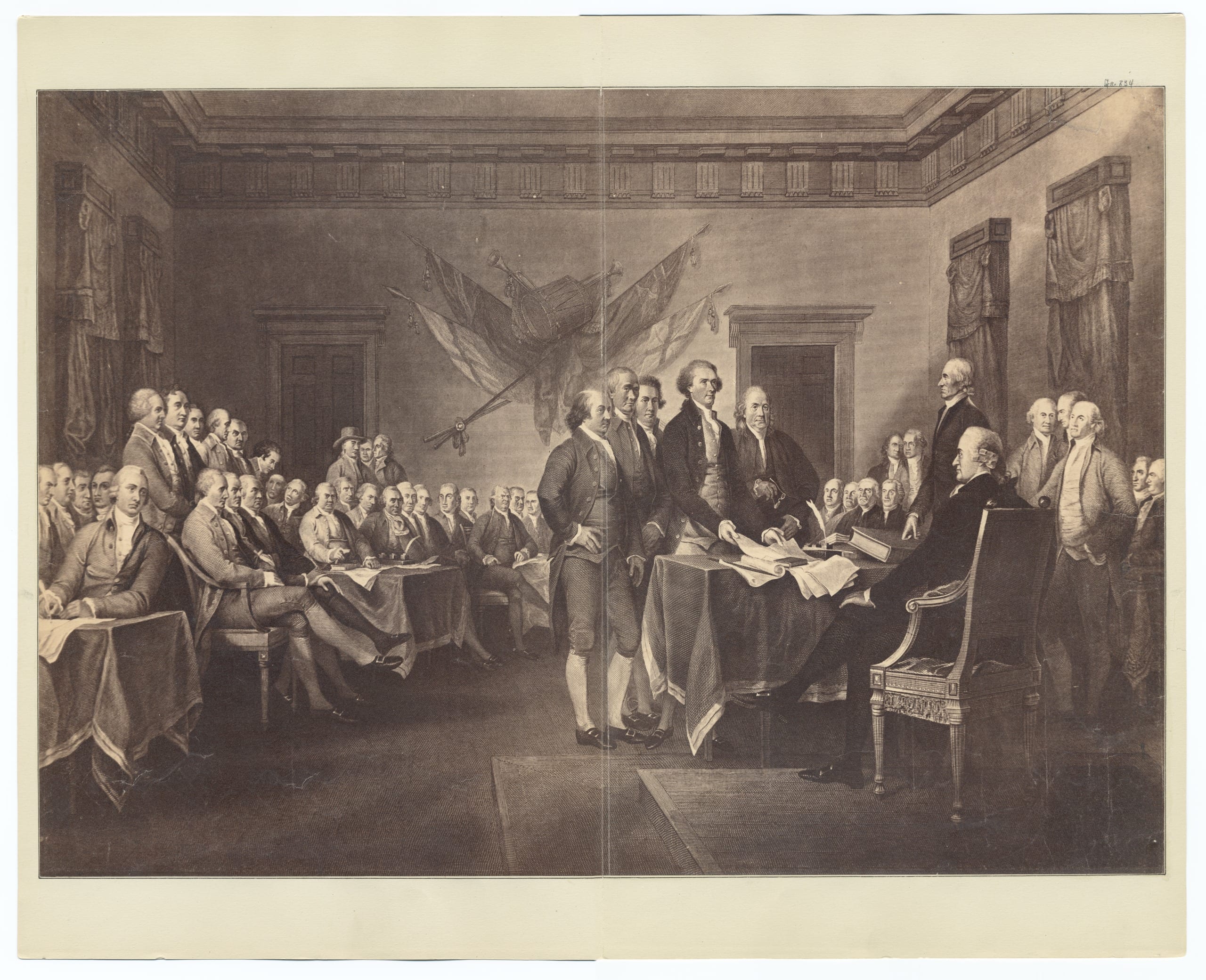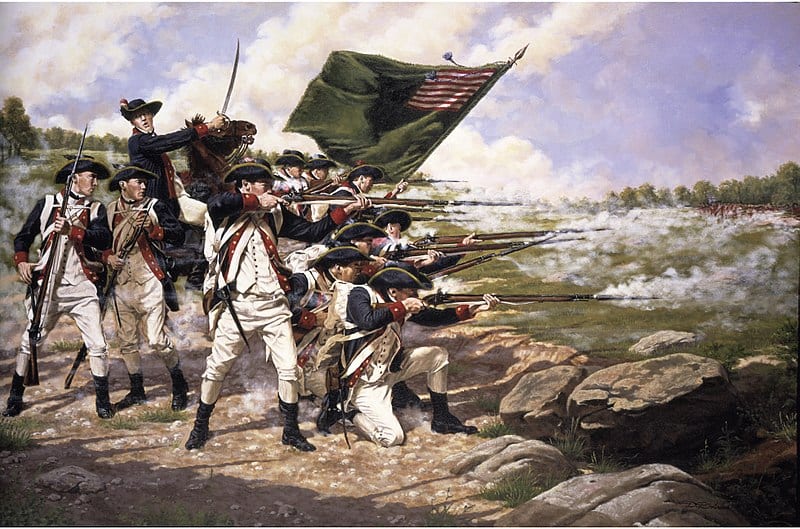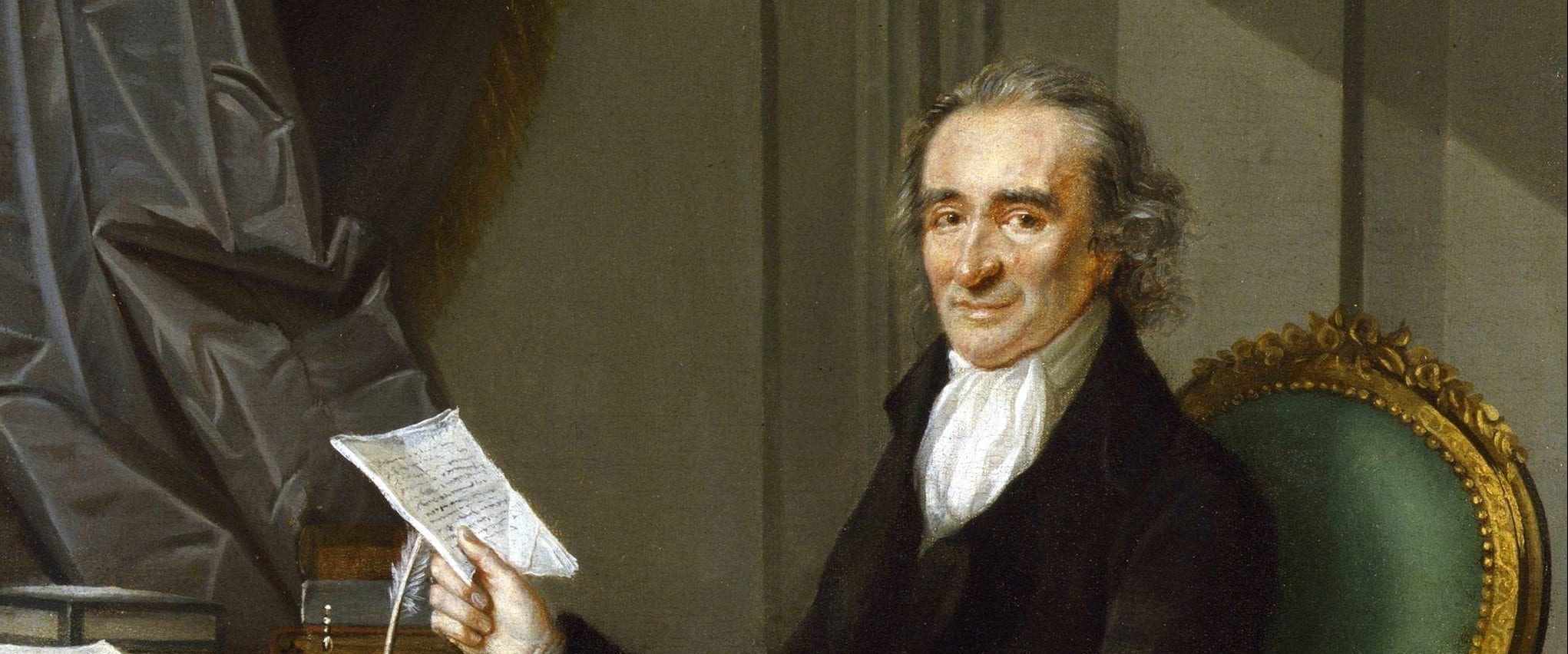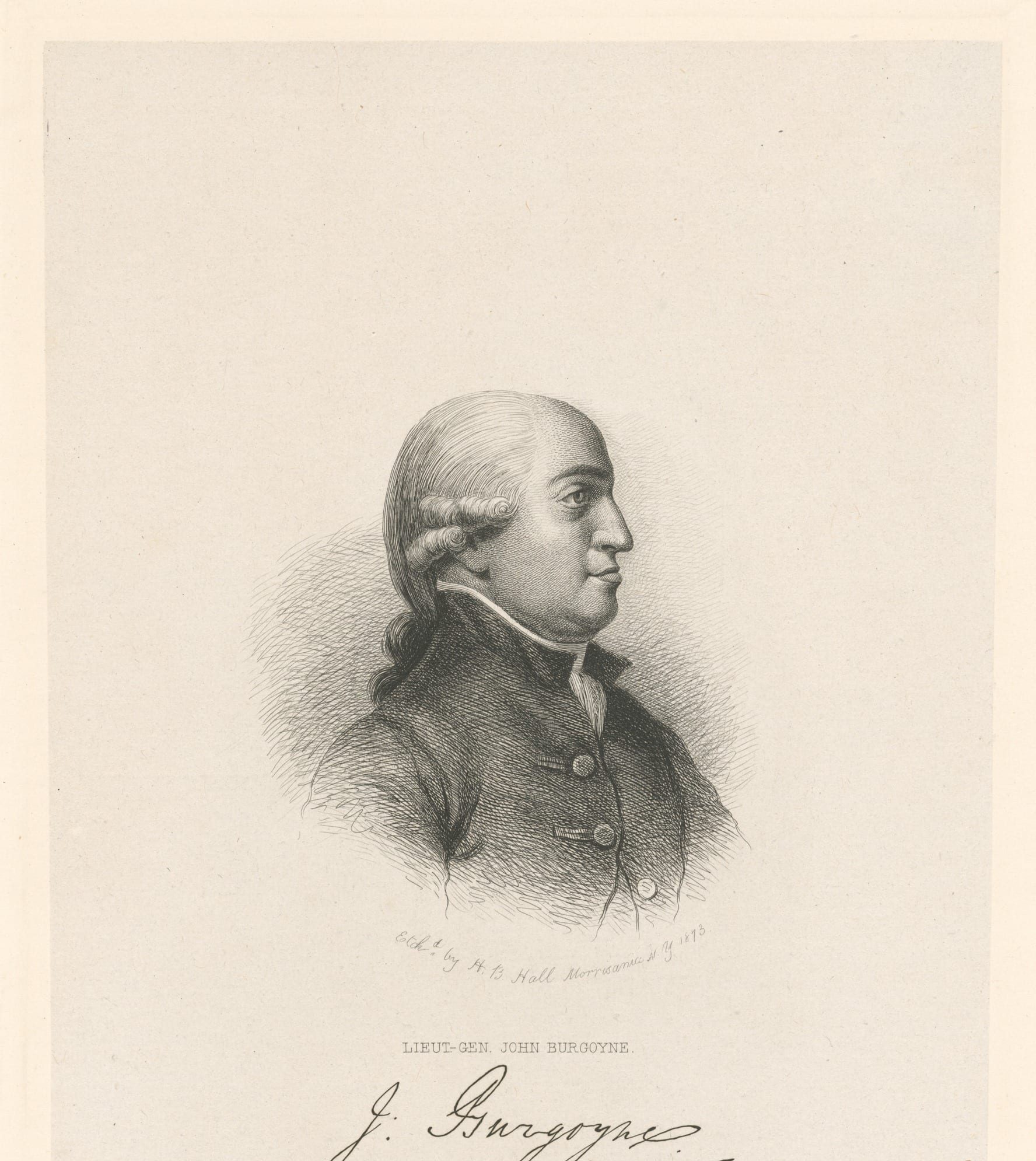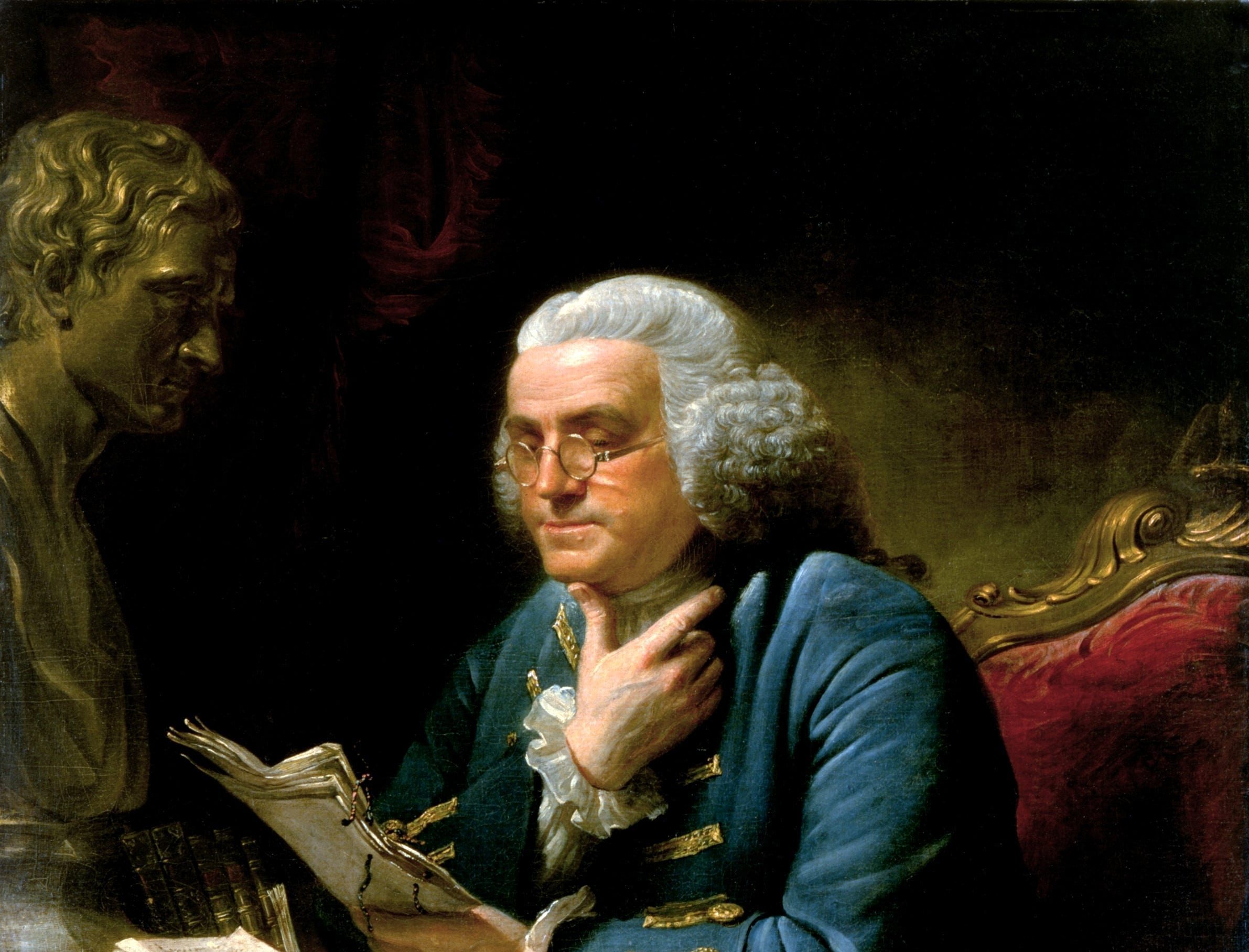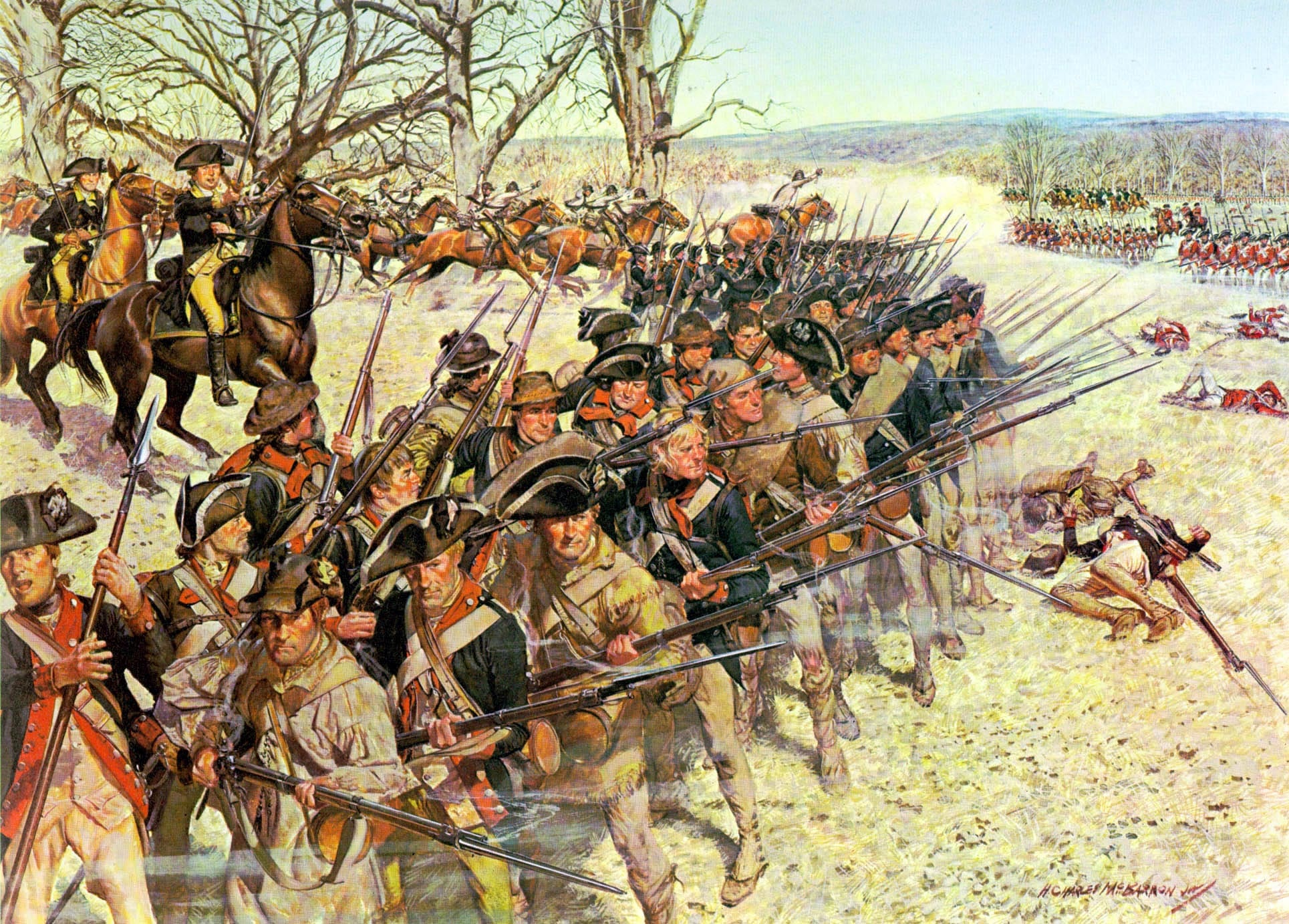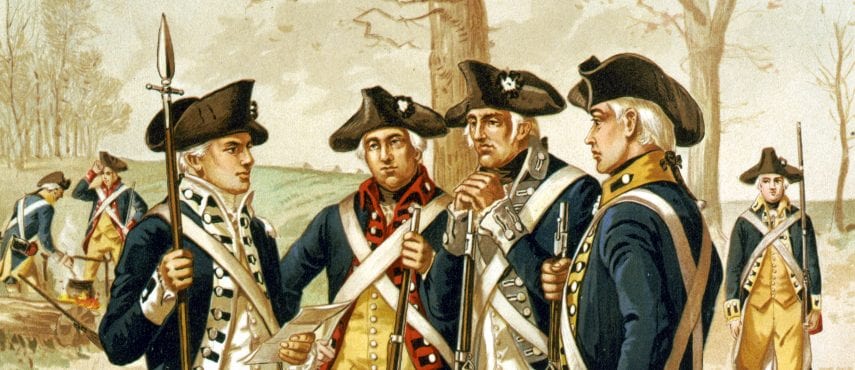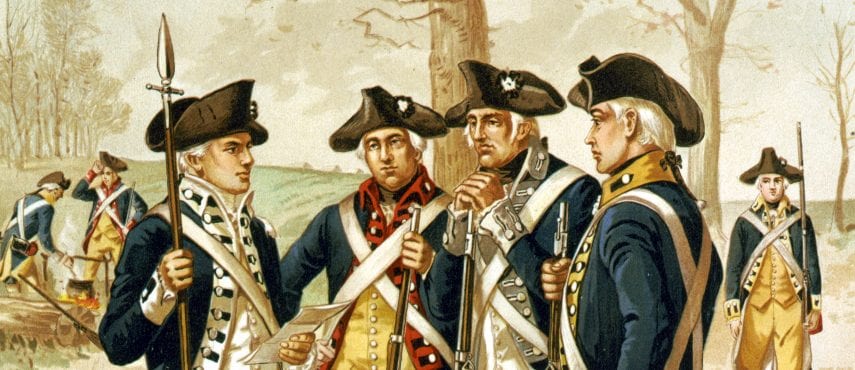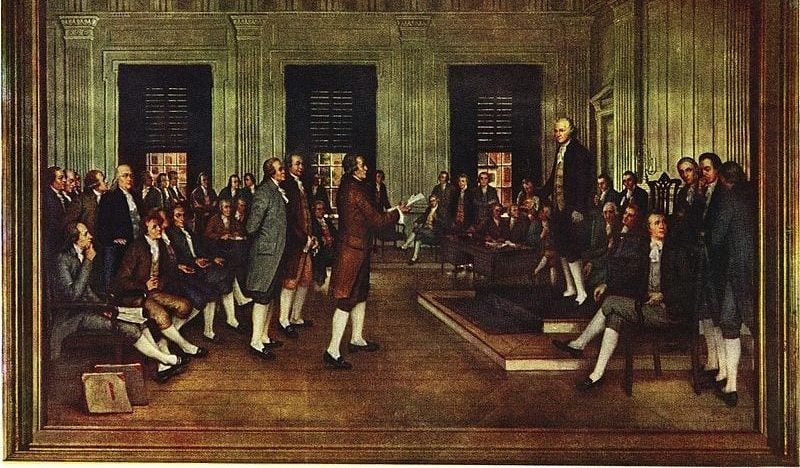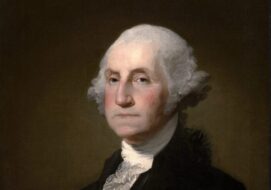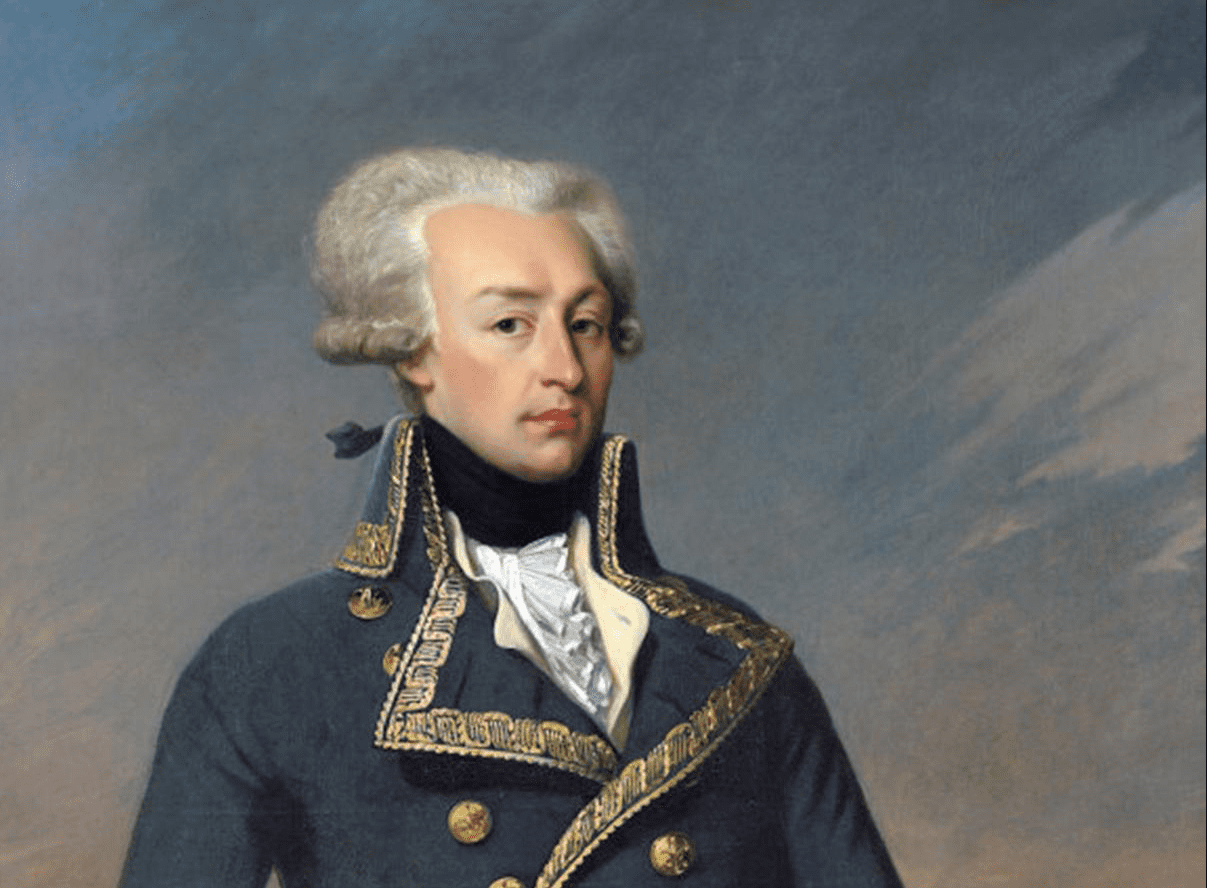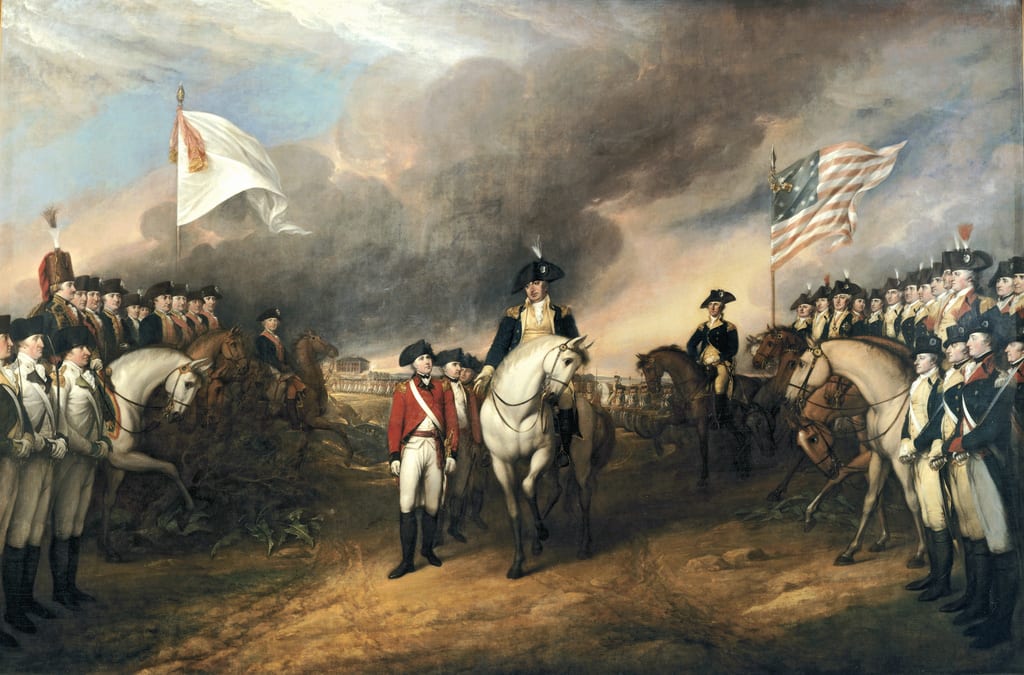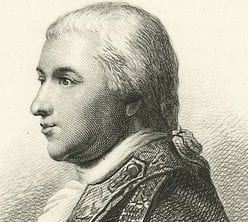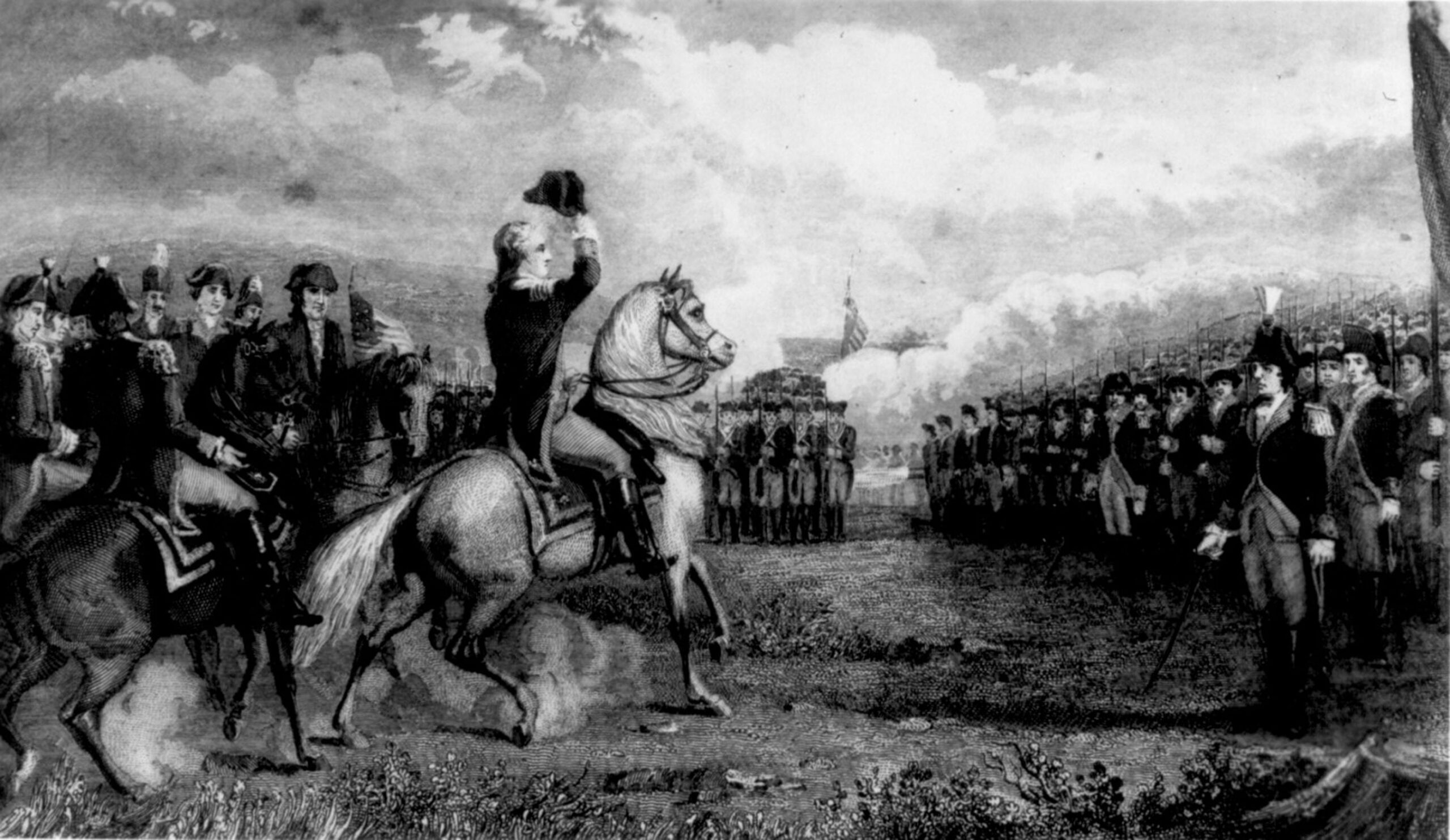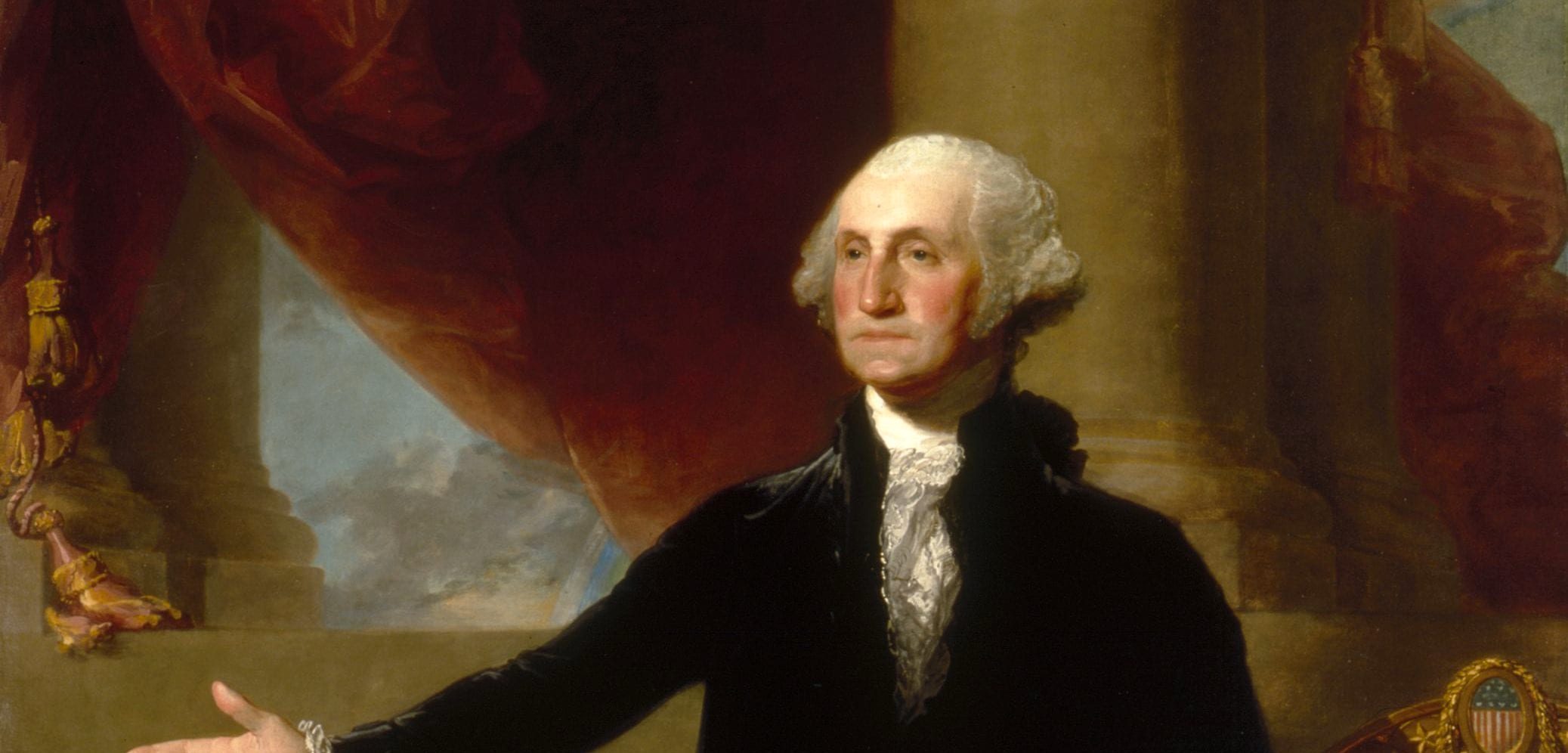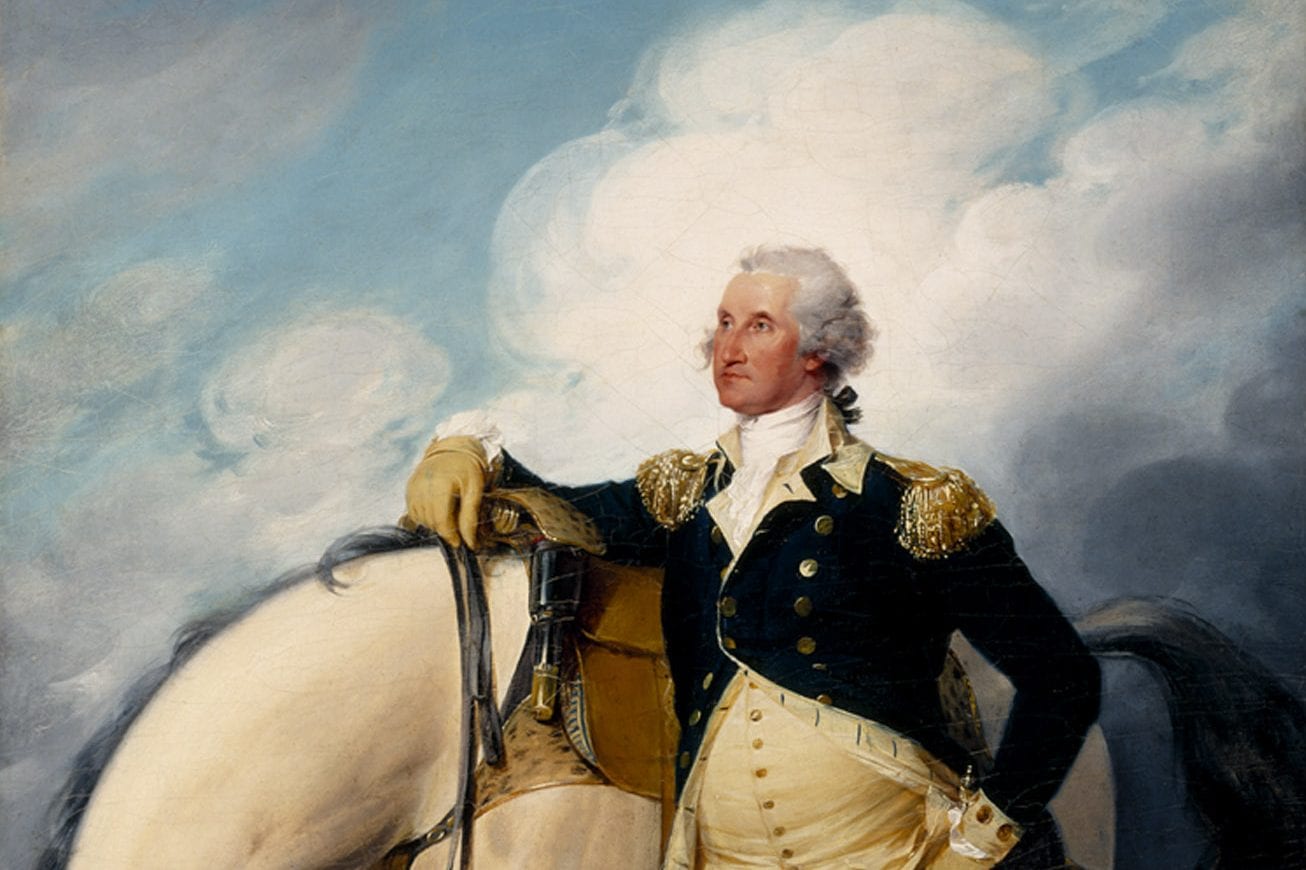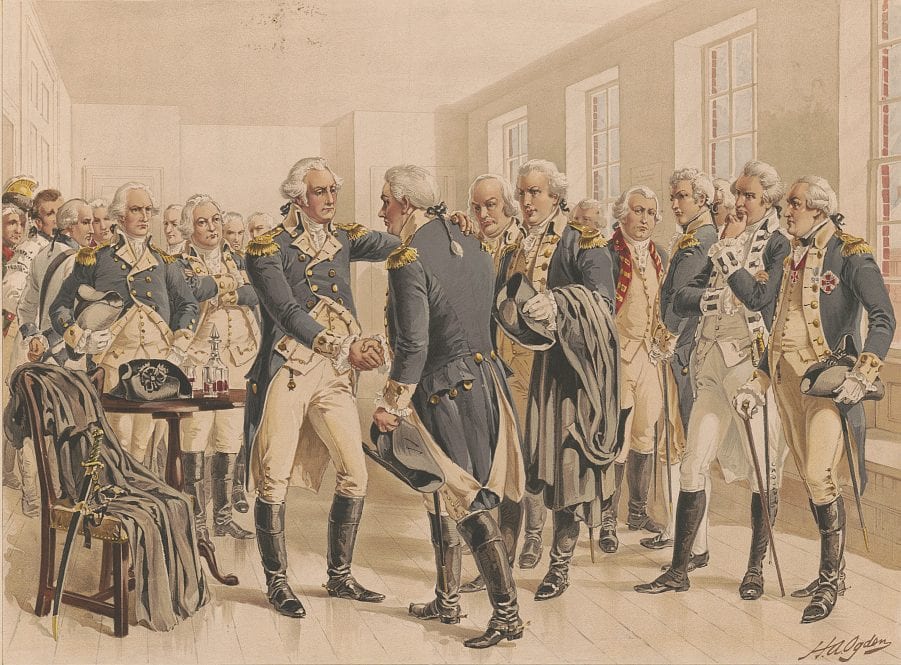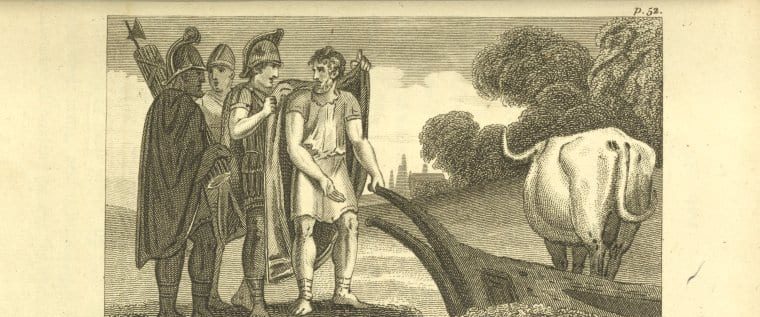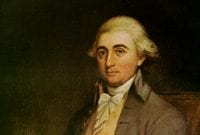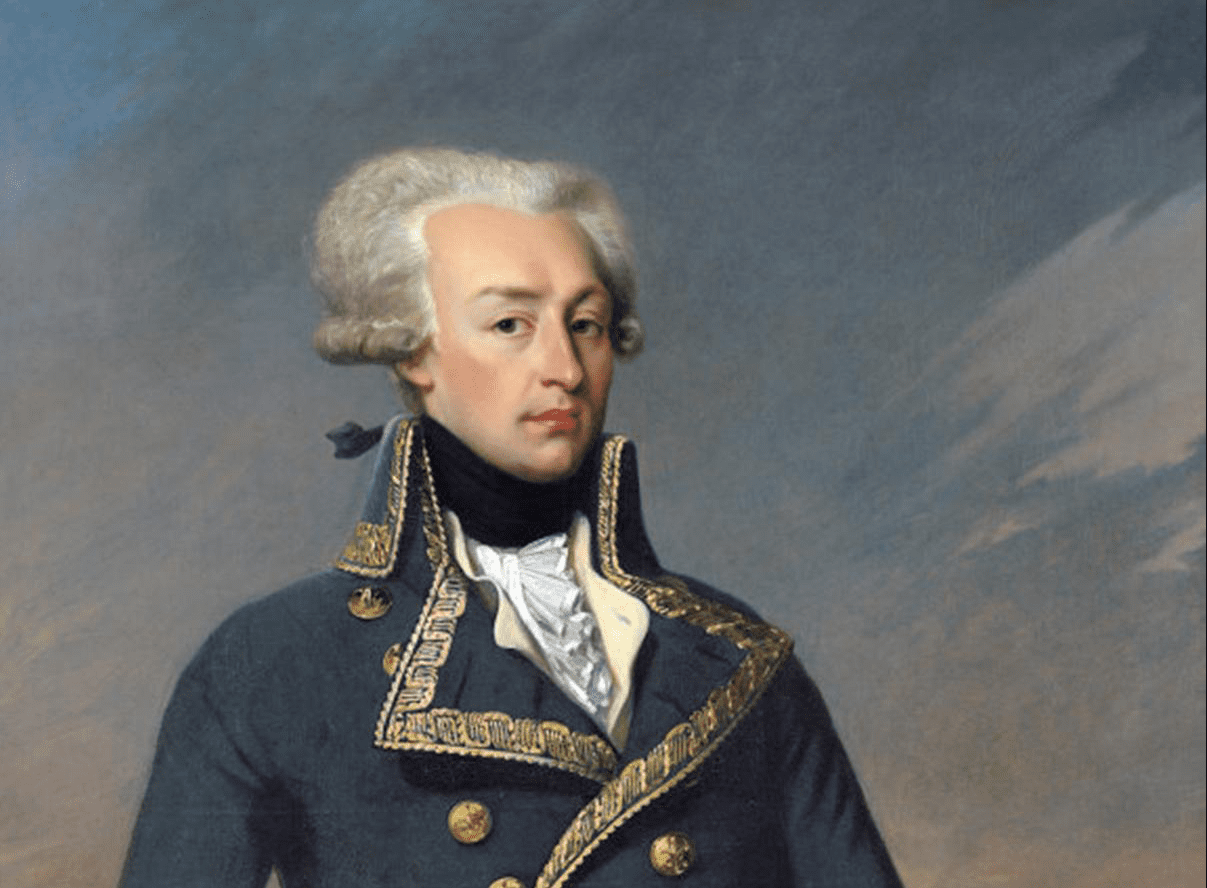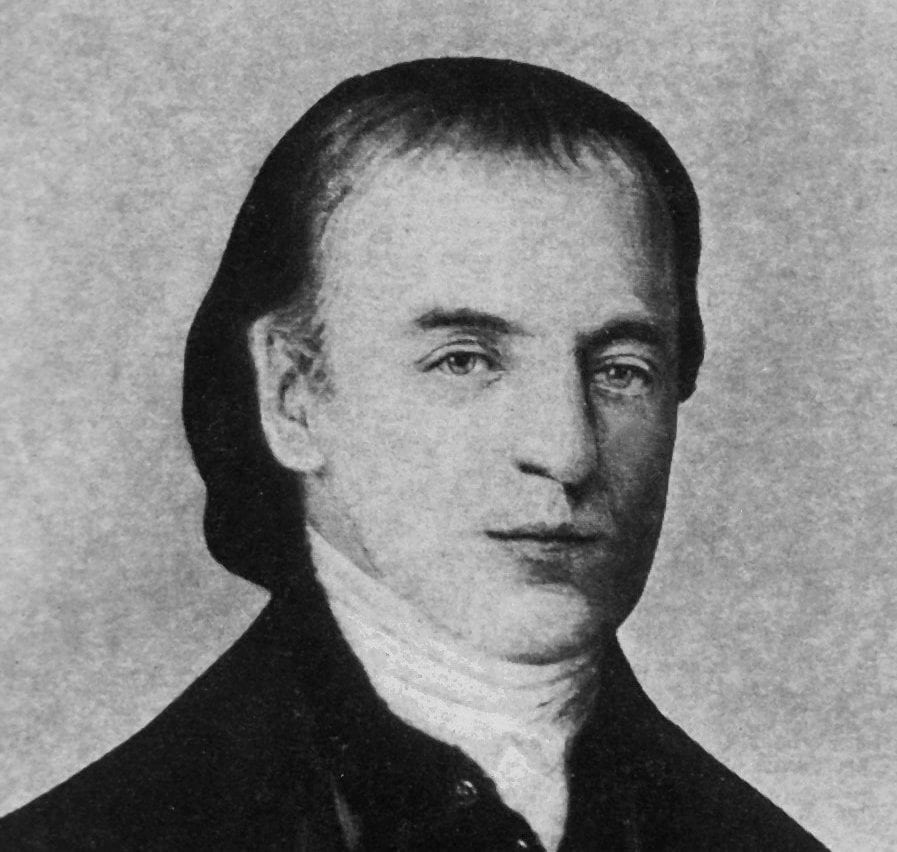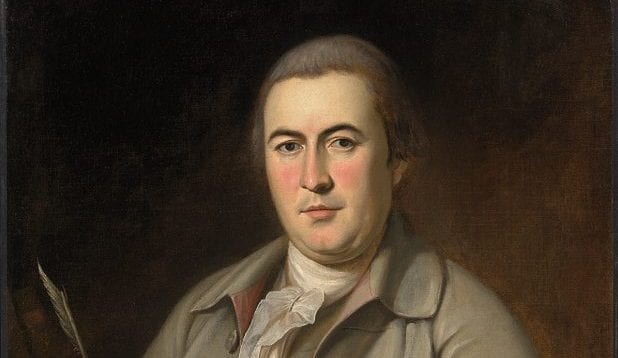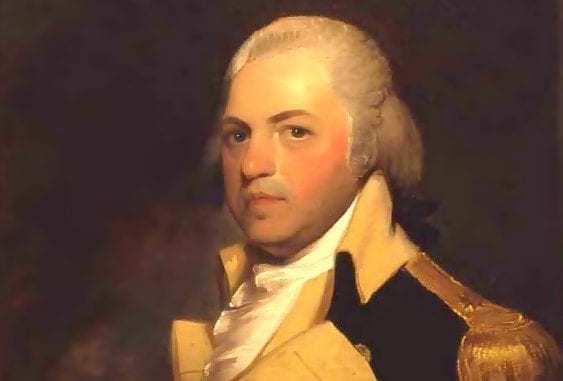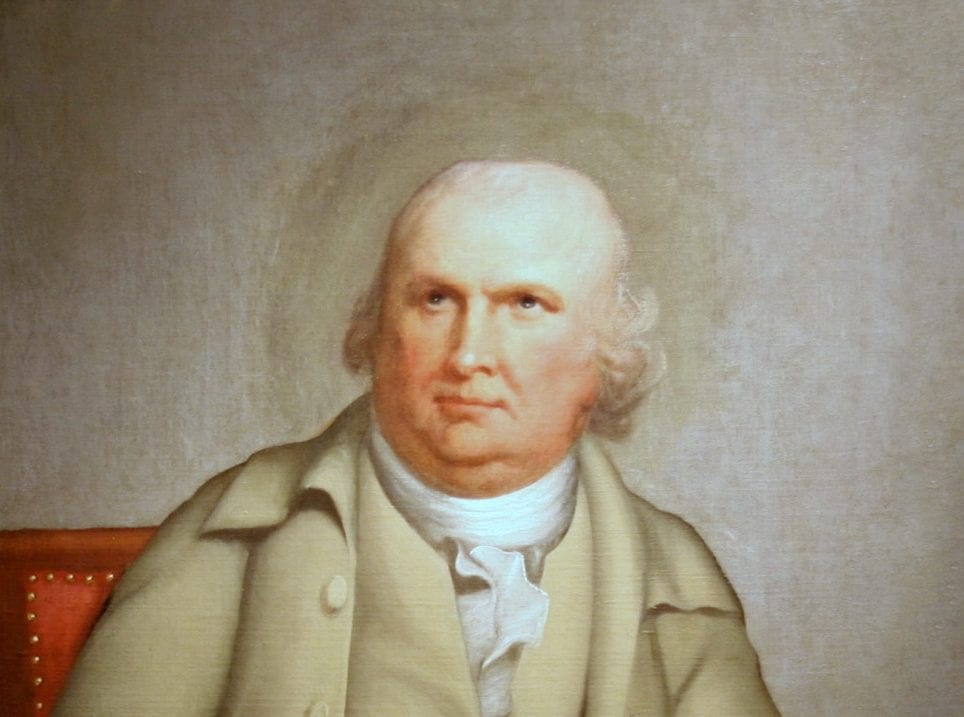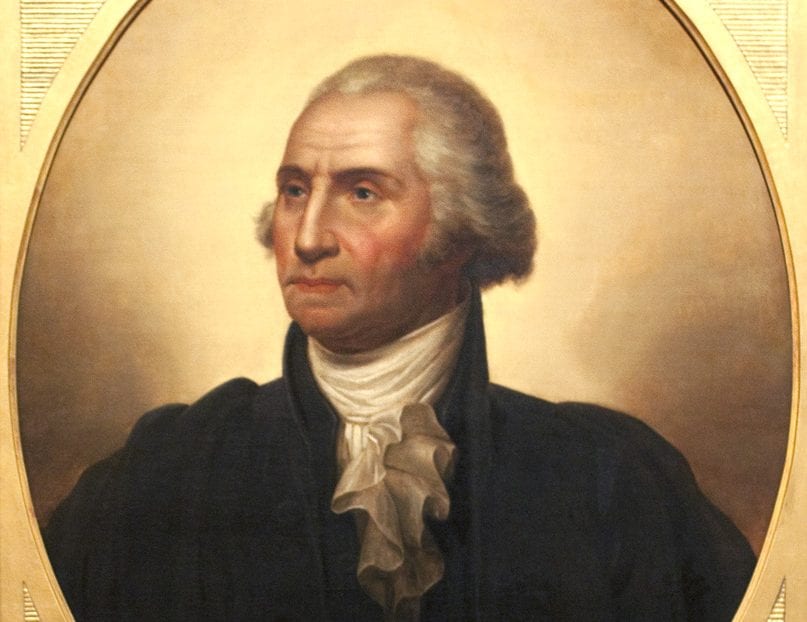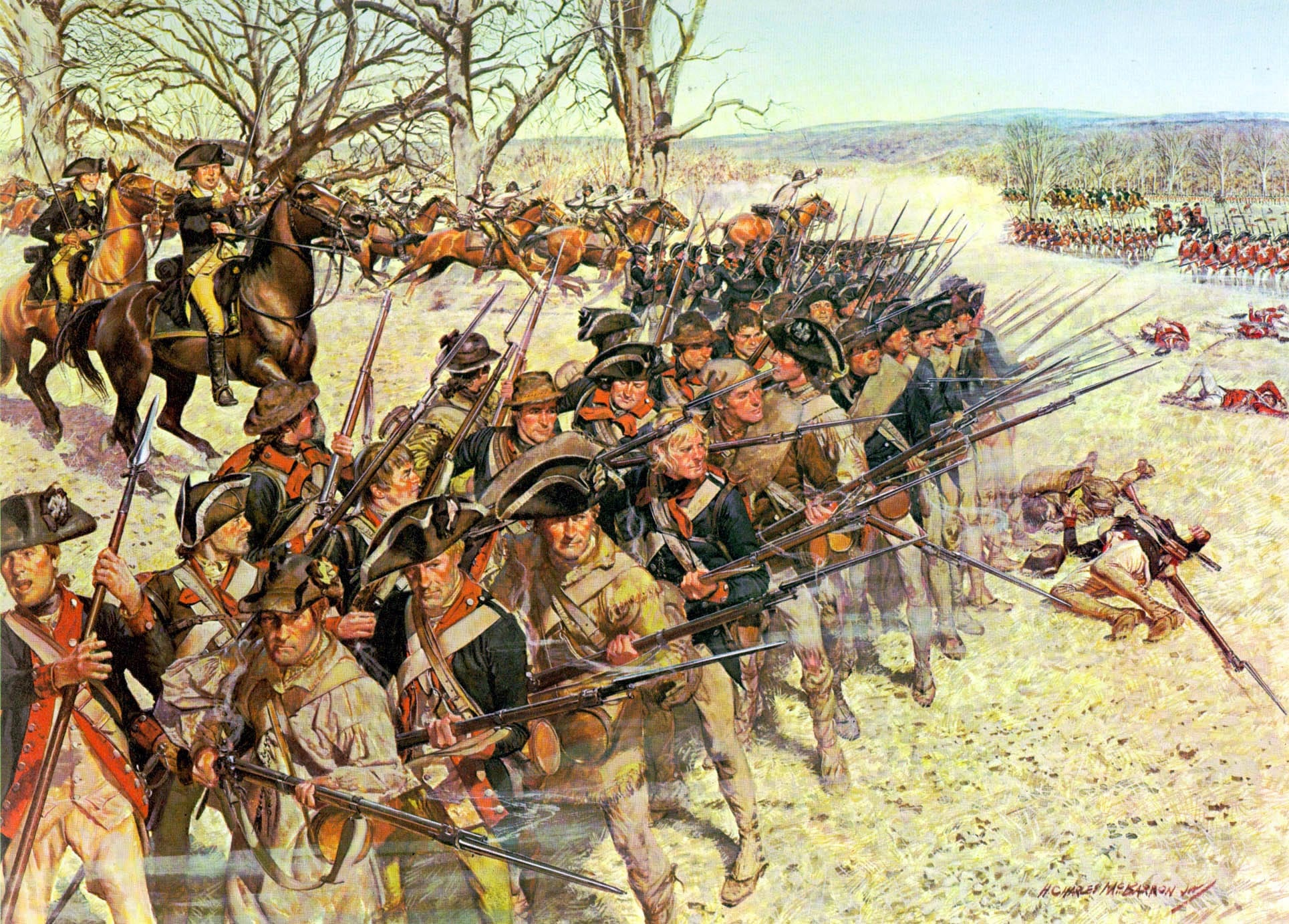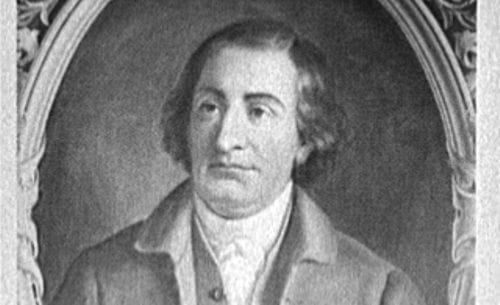
Our rhetorical magician in his paper of January the 9th continues to wheedle: You want nothing but “to know the true state of facts, to rectify whatever is amiss.” He becomes an advocate for the poor of Boston! is for making great allowance for the whigs. “The whigs are too valuable a part of the community to lose. He would not draw down the vengeance of Great Britain. He shall become an advocate for the leading whigs,” etc. It is in vain for us to inquire after the sincerity or consistency of all this. It is agreeable to the precept of Horace:
Irritat, mulcet, falsis terroribus implet,
Ut magus;
And that is all he desires.
After a long discourse, which has nothing in it but what has been answered already, he comes to a great subject indeed, the British constitution, and undertakes to prove that “the authority of parliament extends to the colonies.”
Why will not this writer state the question fairly? The whigs allow that, from the necessity of a case not provided for by common law and to supply a defect in the British dominions, which there undoubtedly is, if they are to be governed only by that law, America has all along consented, still consents, and ever will consent that parliament, being the most powerful legislature in the dominions, should regulate the trade of the dominions. This is founding the authority of parliament to regulate our trade upon compact and consent of the colonies, not upon any principle of common or statute law, not upon any original principle of the English constitution, not upon the principle that parliament is the supreme and sovereign legislature over them in all cases whatsoever. The question is not, therefore, whether the authority of parliament extends to the colonies in any case, for it is admitted by the whigs that it does in that of commerce, but whether it extends in all cases.
We are then detained with a long account of the three simple forms of government and are told that “the British constitution, consisting of king, lords, and commons, is formed upon the principles of monarchy, aristocracy, and democracy, in due proportion; that it includes the principal excellences and excludes the principal defects of the other kinds of government—the most perfect system that the wisdom of ages has produced, and Englishmen glory in being subject to and protected by it.”
Then we are told “that the colonies are a part of the British empire.” But what are we to understand by this? Some of the colonies, most of them, indeed, were settled before the kingdom of Great Britain was brought into existence. The union of England and Scotland was made and established by act of parliament in the reign of Queen Anne, and it was this union and statute which erected the kingdom of Great Britain. The colonies were settled long before, in the reigns of the Jameses and Charleses. What authority over them had Scotland? Scotland, England, and the colonies were all under one king before that; the two crowns of England and Scotland united on the head of James I and continued united on that of Charles I, when our first charter was granted. Our charter being granted by him who was king of both nations to our ancestors, most of whom were post nati, born after the union of the two crowns, and consequently, as was adjudged in Calvin’s case, free, natural subjects of Scotland as well as England—had not the king as good a right to have governed the colonies by his Scottish as by his English parliament, and to have granted our charters under the seal of Scotland as well as that of England?
But to wave this. If the English parliament were to govern us, where did they get the right without our consent to take the Scottish parliament into a participation of the government over us? When this was done, was the American share of the democracy of the constitution consulted? If not, were not the Americans deprived of the benefit of the democratical part of the constitution? And is not the democracy as essential to the English constitution as the monarchy or aristocracy? Should we have been more effectually deprived of the benefit of the British or English constitution, if one or both houses of parliament, or if our house and council, had made this union with the two houses of parliament in Scotland without the king?
If a new constitution was to be formed for the whole British dominions and a supreme legislature coextensive with it upon the general principles of the English constitution, an equal mixture of monarchy, aristocracy, and democracy, let us see what would be necessary. England has six millions of people, we will say; America had three. England has five hundred members in the house of commons, we will say; America must have two hundred and fifty. Is it possible she should maintain them there, or could they at such a distance know the state, the sense, or exigencies of their constituents? Ireland, too, must be incorporated and send another hundred or two of members. The territory in the East Indies and West India Islands must send members. And after all this, every navigation act, every act of trade must be repealed. America, and the East and West Indies, and Africa, too, must have equal liberty to trade with all the world that the favored inhabitants of Great Britain have now. Will the ministry thank Massachusettensis for becoming an advocate for such a union and incorporation of all the dominions of the king of Great Britain? Yet, without such a union, a legislature which shall be sovereign and supreme in all cases whatsoever and coextensive with the empire can never be established upon the general principles of the English constitution which Massachusettensis lays down, namely, an equal mixture of monarchy, aristocracy, and democracy. Nay, further, in order to comply with this principle, this new government, this mighty colossus which is to bestride the narrow world, must have a house of lords, consisting of Irish, East and West Indian, African, American, as well as English and Scottish noblemen; for the nobility ought to be scattered about all the dominions, as well as the representatives of the commons. If in twenty years more America should have six millions of inhabitants, as there is a boundless territory to fill up, she must have five hundred representatives. Upon these principles, if in forty years she should have twelve millions, a thousand, and if the inhabitants of the three kingdoms remain as they are, being already full of inhabitants, what will become of your supreme legislative? It will be translated, crown and all, to America. This is a sublime system for America. It will flatter those ideas of independence which the tories impute to them, if they have any such, more than any other plan of independence that I have ever heard projected.
“The best writers upon the law of nations tell us that when a nation takes possession of a distant country and settles there, that country, though separated from the principal establishment, or mother country, naturally becomes a part of the state, equal with its ancient possessions.” We are not told who these “best writers” are. I think we ought to be introduced to them. But their meaning may be no more than that it is best they should be incorporated with the ancient establishment by contract, or by some new law and institution, by which the new country shall have equal right, powers, and privileges, as well as equal protection, and be under equal obligations of obedience, with the old. Has there been any such contract between Britain and the colonies? Is America incorporated into the realm? Is it a part of the realm? Its it a part of the kingdom? Has it any share in the legislative of the realm? The constitution requires that every foot of land should be represented in the third estate, the democratical branch of the constitution. How many millions of acres in America, how many thousands of wealthy landholders, have no representatives there?
But let these “best writers” say what they will, there is nothing in the law of nations, which is only the law of right reason applied to the conduct of nations, that requires that emigrants from a state should continue, or be made, a part of the state.
The practice of nations has been different. The Greeks planted colonies and neither demanded nor pretended any authority over them; but they became distinct, independent commonwealths. The Romans continued their colonies under the jurisdiction of the mother commonwealth; but, nevertheless, they allowed them the privileges of cities. Indeed, that sagacious city seems to have been aware of difficulties similar to those under which Great Britain is now laboring. She seems to have been sensible of the impossibility of keeping colonies planted at great distances under the absolute control of her senatus-consulta. . . .
I have said that the practice of free governments alone can be quoted with propriety to show the sense of nations. But the sense and practice of nations is not enough. Their practice must be reasonable, just, and right, or it will not govern Americans.
Absolute monarchies, whatever their practice may be, are nothing to us; for, as Harrington observes, “Absolute monarchy, as that of the Turks, neither plants its people at home nor abroad otherwise than as tenants for life or at will; wherefore, its national and provincial government is all one.”
I deny, therefore, that the practice of free nations or the opinions of the best writers upon the law of nations will warrant the position of Massachusettensis that “when a nation takes possession of a distant territory, that becomes a part of the state equally with its ancient possessions.” The practice of free nations and the opinions of the best writers are in general on the contrary.
I agree that “two supreme and independent authorities cannot exist in the same state,” any more than two supreme beings in one universe; and , therefore, I contend that our provincial legislatures are the only supreme authorities in our colonies. Parliament, notwithstanding this, may be allowed an authority supreme and sovereign over the ocean, which may be limited by the banks of the ocean or the bounds of our charters; our charters give us no authority over the high seas. Parliament has our consent to assume a jurisdiction over them. And here is a line fairly drawn between the rights of Britain and the rights of the colonies, namely, the banks of the ocean, or low-water mark, the line of division between common law and civil or maritime law. If this is not sufficient—if parliament are at a loss for any principle of natural, civil, maritime, moral, or common law on which to ground any authority over the high seas, the Atlantic especially, let the colonies be treated like reasonable creatures, and they will discover great ingenuity and modesty. The acts of trade and navigation might be confirmed by provincial laws and carried into execution by our own courts and juries, and in this case illicit trade would be cut up by the roots forever. I knew the smuggling tories in New York and Boston would cry out against this because it would not only destroy their profitable game of smuggling, but their whole place and pension system. But the whigs, that is, a vast majority of the whole continent, would not regard the smuggling tories. In one word, if public principles, and motives, and arguments were alone to determine this dispute between the two countries, it might be settled forever in a few hours; but the everlasting clamors of prejudice, passion, and private interest drown every consideration of that sort and are precipitating us into a civil war.
“If, then, we are a part of the British empire, we must be subject to the supreme power of the state, which is vested in the estates in parliament.”
Here again, we are to be conjured out of our senses by the magic in the words “British empire,” and “supreme power of the state.” But, however it may sound, I say we are not a part of the British empire; because the British government is not an empire. The governments of France, Spain, etc., are not empires but monarchies, supposed to be governed by fixed fundamental laws, though not really. The British government is still less entitled to the style of an empire. It is a limited monarchy. If Aristotle, Livy, and Harrington knew what a republic was, the British constitution is much more like a republic than an empire. They define a republic to be a government of laws, and not of men. If this definition be just, the British constitution is nothing more nor less than a republic in which the king is first magistrate. This office being hereditary and being possessed of such ample and splendid prerogatives is no objection to the government’s being a republic, as long as it is bound by fixed laws which the people have a voice in making and a right to defend. An empire is a despotism, and an emperor a despot bound by no law or limitation but his own will; it is a stretch of tyranny beyond absolute monarchy. For, although the will of an absolute monarch is law, yet his edicts must be registered by parliaments. Even this formality is not necessary in an empire. There the maxim is quod principi placuit legis habet vigorem, even without having that will and pleasure recorded. There are but three empires now in Europe, the German or Holy Roman, the Russian, and the Ottoman.
There is another sense, indeed, in which the word empire is used in which it may be applied to the government of Geneva or any other republic as well as to monarchy or despotism. In this sense it is synonymous with government, rule, or dominion. In this sense we are within the dominion, rule, or government of the king of Great Britain.
The question should be whether we are a part of the kingdom of Great Britain. This is the only language known in English laws. We are not then a part of the British kingdom, realm, or state; and therefore the supreme power of the kingdom, realm, or state is not, upon these principles, the supreme power of us. That “supreme power over America is vested in the estates in parliament” is an affront to us, for there is not an acre of American land represented there; there are no American estates in parliament.
To say that we “must be” subject seems to betray a consciousness that we are not by any law or upon any principles but those of mere power, and an opinion that we ought to be or that it is necessary that we should be. But if this should be admitted for argument’s sake only, what is the consequence? The consequences that may fairly be drawn are these: that Britain has been imprudent enough to let colonies be planted, until they are become numerous and important, without ever having wisdom enough to concert a plan for their government consistent with her own welfare; that now it is necessary to make them submit to the authority of parliament; and, because there is no principle of law, or justice, or reason by which she can effect it, therefore she will resort to war and conquest—to the maxim, delenda est Carthago. These are the consequences, according to this writer’s idea. We think the consequences are that she has after one hundred and fifty years discovered a defect in her government which ought to be supplied by some just and reasonable means, that is, by the consent of the colonies; for metaphysicians and politicians may dispute forever but they will never find any other moral principle or foundation of rule or obedience than the consent of governors and governed. She has found out that the great machine will not go any longer without a new wheel. She will make this herself. We think she is making it of such materials and workmanship as will tear the whole machine to pieces. We are willing, if she can convince us of the necessity of such a wheel, to assist with artists and materials in making it, so that it may answer the end. But she says, we shall have no share in it, and if we will not let her patch it up as she pleases, her Massachusettensis and other advocates tell us, she will tear it to pieces herself by cutting our throats. To this kind of reasoning we can only answer that we will not stand still to be butchered. We will defend our lives as long as Providence shall enable us. . . . .
. . .”If the colonies are not subject to the authority of parliament, Great Britain and the colonies must be distinct states, as completely so as England and Scotland were before the union, or as Great Britain and Hanover are now.” There is no need of being startled at this consequence. It is very harmless. There is no absurdity at all in it. Distinct states may be united under one king. And those states may be further centered and united together by a treaty of commerce. This is the case. We have by our own express consent contracted to observe the Navigation Act and by our implied consent, by long usage and uninterrupted acquiescence, have submitted to the other acts of trade, however grievous some of them may be. This may be compared to a treaty of commerce by which those distinct states are cemented together in perpetual league and amity. And if any further ratifications of this pact or treaty are necessary, the colonies would readily enter into them provided their other liberties were inviolate.
That “the colonies owe no allegiance to any imperial crown,” provided such a crown involves in it a house of lords and a house of commons, is certain. Indeed, we owe no allegiance to any crown at all. We owe allegiance to the person of his majesty, King George III, whom God preserve. But allegiance is due universally, both from Britons and Americans, to the person of the king, not to his crown; to his natural, not his politic capability, as I will undertake to prove hereafter, from the highest authorities and the most solemn adjudications which were ever made within any part of the British dominions.
If his majesty’s title to the crown is “derived from an act of parliament, made since the settlement of these colonies,” it was not made since the date of our charter. Our charter was granted by King William and Queen Mary, three years after the revolution; and the oaths of allegiance are established by a law of the province. So that our allegiance to his majesty is not due by virtue of any act of a British parliament but by our own charter and province laws. It ought to be remembered that there was a revolution here, as well as in England, and that we, as well as the people of England, made an original, express contract with King William.
If it follows from thence that he appears “king of Massachusetts, king of Rhode Island, king of Connecticut, etc.” this is no absurdity at all. He will appear in this light, and does appear so, whether parliament has authority over us or not. He is king of Ireland, I suppose, although parliament is allowed to have authority there. As to giving his majesty those titles, I have no objection at all; I wish he would be graciously pleased to assume them.
The only proposition in all this writer’s long string of pretended absurdities which he says follows from the position that we are distinct states is this: That “as the king must govern each state by its parliament, those several parliaments would pursue the particular interest of its own state, and however well disposed the king might be to pursue a line of interest that was common to all, the checks and control that he would meet with would render it impossible.” Every argument ought to be allowed its full weight; and therefore candor obliges me to acknowledge that here lies all the difficulty that there is in this whole controversy. There has been from the first to last on both sides of the Atlantic an idea, an apprehension, that it was necessary there should be some superintending power to draw together all the wills and unite all the strength of the subjects in all the dominions, in case of war and in the case of trade. The necessity of this in case of trade has been so apparent that, as has often been said, we have consented that parliament should exercise such a power. In case of war it has by some been thought necessary. But in fact and experience it has not been found so. What thought the proprietary colonies, on account of disputes with the proprietors, did not come in so early to the assistance of the general cause in the last war as they ought, and perhaps one of them not at all? The inconveniences of this were small in comparison of the absolute ruin to the liberties of all which must follow the submission to parliament in all cases, which would be giving up all the popular limitations upon the government. These inconveniences fell chiefly upon New England. She was necessitated to greater exertions; but she had rather suffer these again and again than others infinitely greater. However, this subject has been so long in contemplation that it is fully understood now in all the colonies, so that there is no danger in case of another war of any colony’s failing of it’s duty.
But, admitting the proposition in its full force, that it is absolutely necessary there should be a supreme power coextensive with all the dominions, will it follow that parliament, as now constituted, has a right to assume this supreme jurisdiction? By no means.
A union of the colonies might be projected and an American legislature, for if America has three millions of people and the whole dominions twelve millions, she ought to send a quarter part of all the members to the house of commons, and instead of holding parliaments always at Westminster, the haughty members for Great Britain must humble themselves, one session in four, to cross the Atlantic and hold the parliament in America.
There is no avoiding all inconveniences in human affairs. The greatest possible or conceivable would arise from ceding to parliament power over us without a representation in it. The next greatest would accrue from any plan that can be devised for a representation there. The least of all would arise from going on as we began and fared well for one hundred and fifty years by letting parliament regulate trade, and our own assemblies all other matters.
As to ” the prerogatives not being defined, or limited,” it is as much so in the colonies as in Great Britain, and as well understood and as cheerfully submitted to in the former as the latter.
But “where is the British constitution, that we all agree we are entitled to?” I answer, if we enjoy and are entitled to more liberty than the British constitution allows, where is the harm? Or if we enjoy the British constitution in greater purity and perfection than they do in England, as is really the case, whose fault is this? Not ours.
We may find all the blessings of this constitution “in our provincial assemblies.” Our houses of representatives have, and ought to exercise, every power of the house of commons. The first charter to this colony is nothing to the present argument, but it did grant a power of taxing the people, implicitly, though not in express terms. It granted all the rights and liberties of Englishmen, which include the power of taxing the people.
“Our council boards” in the royal governments “are destitute of the noble independence and splendid appendages of peerage.” Most certainly they are the meanest creatures and tools in the political creation, dependent every moment for their existence on the tainted breath of a prime minister. But they have the authority of the house of lords in our little models of the English constitution; and it is this which makes them so great a grievance. The crown has really two branches of our legislature in its power. Let an act of parliament pass at home, putting it in the power of the king to remove any peer from the house of lords at his pleasure, and what will become of the British constitution? It will be overturned from the foundation. Yet we are perpetually insulted by being told that making our council by mandamus brings us nearer to the British constitution. In this province by charter, the council certainly hold their seats for the year, after being chosen and approved, independent of both of the other branches. For their creation they are equally obliged to both the other branches, so that there is little or no bias in favor of either; if any, it is in favor of the prerogative. In short, it is not easy without an hereditary nobility to constitute a council more independent, more nearly resembling the house of lords, than the council of this province has ever been by charter.
But perhaps it will be said that we are to enjoy the British constitution in our supreme legislature, the parliament, not in our provincial legislatures. To this I answer, if parliament is to be our supreme legislature, we shall be under a complete oligarchy or aristocracy, not the British constitution, which this writer himself defines a mixture of monarchy, aristocracy, and democracy. For king, lords, and commons will constitute one great oligarchy, as they will stand related to America, as much as the decemvirs did in Rome; with this difference for the worse, that our rulers are to be three thousand miles off. The definition of an oligarchy is a government by a number of grandees over whom the people have no control. The States of Holland were once chosen by the people frequently, then chosen for life; now they are not chosen by the people at all. When a member dies, his place is filled up, not by the people he is to represent, but by the States. Is not this depriving the Hollanders of a free constitution and subjecting them to an aristocracy or oligarchy? Will not the government of America be like it? Will not representatives be chosen for them by others whom they never saw nor heard of? If our provincial constitutions are in any respect imperfect and what alteration, they have capacity enough to discern it and power enough to effect it without the interposition of parliament. There never was an American constitution attempted by parliament before the Quebec bill and Massachusetts bill. These are such samples of what they may, and probably will be, that few Americans are in love with them. However, America will never allow that parliament has any authority to alter their constitution at all. She is wholly penetrated with a sense of the necessity of resisting it at all hazards. And she would resist it if the constitution of the Massachusetts has been altered as much for the better as it is for the worse. The question we insist on most is, not whether the alteration is for the better or not, but whether parliament has any right to make any alteration at all. And it is the universal sense of America that it has none.
We are told, that “the provincial constitutions have no principle of stability within themselves.” This is so great a mistake that there is not more order or stability in any government upon the globe than there ever has been in that of Connecticut. The same may be said of the Massachusetts and Pennsylvania, and, indeed, of the others very nearly. “That these constitutions, in turbulent times, would become wholly monarchical or wholly republican,” they must be such times as would have a similar effect upon the constitution at home. But in order to avoid the danger of this, what is to be done? Not give us an English constitution, it seems, but make sure of us at once by giving us constitutions wholly monarchical, annihilating our houses of representatives first, by taking from them the support of government, etc., and then making the council and judges wholly dependent on the crown.
That a representation in parliament is impracticable we all agree; but the consequence is that we must have a representation in our supreme legislatures here. This was the consequence that was drawn by kings, ministers, our ancestors, and the whole nation more than a century ago when the colonies were first settled and continued to be the general sense until the last peace; and it must be the general sense again soon, or Great Britain will lose her colonies.
“This is apparently the meaning of that celebrated passage in Governor Hutchinson’s letter, that rung through the continent, namely, ’There must be an abridgment of what is called English liberties.’” But all the art and subtlety of Massachusettensis will never vindicate or excuse that expression. According to this writer, it should have been “there is an abridgment of English liberties, and it cannot be otherwise.” But every candid reader must see that the letter writer had more than that in his view and in his wishes. In the same letter, a little before, he says, “what marks of resentment the parliament will show, whether they will be upon the province in general or particular persons, is extremely uncertain; but that they will be placed somewhere is most certain; and I add, because I think it ought to be so.” Is it possible to read this without thinking of the Port Bill, the Charter Bill, and the resolves for sending persons to England by the statute of Henry VIII to be tried? But this is not all: “This is most certainly a crisis,” says he, etc. “If no measure shall have been taken to secure this dependence (that is, the dependence which a colony ought to have upon the parent state), it is all over with us.” “The friends of government will be utterly disheartened; and the friends of anarchy will be afraid of nothing, be it ever so extravagant.” But this is not all: “I never think of the measures necessary for the peace and good order of the colonies without pain.” “There must he an abridgment of what are called English liberties.” What could he mean? Anything less than depriving us of trial by jury? Perhaps he wanted an act of parliament to try persons here for treason, by a court of admiralty. Perhaps an act that the province should be governed by a governor and a mandamus council without a house of representatives. But to put it out of all doubt that his meaning was much worse that Massachusettensis endeavors to make it, he explains himself in a subsequent part of the letter: “I wish,” says he, “the good of the colony, when I wish to see some further restraint of liberty.” Here it is rendered certain that he is pleading for a further restraint of liberty, not explaining the restraint he apprehended the constitution had already laid us under.
My indignation at this letter has sometimes been softened by compassion. It carries on the face of it evident marks of madness. It was written in such a transport of passions, ambition and revenge chiefly, that his reason was manifestly overpowered. The vessel was tost in such a hurricane that she could not feel her helm. Indeed he seems to have had a confused consciousness of this himself. “Pardon me this excursion,” says he; “it really proceeds from the state of mind into which our perplexed affairs often throw me.”
“It is our highest interest to continue a part of the British empire and equally our duty to remain subject to the authority of parliament,” says Massachusettensis.
We are a part of the British dominions, that is, of the King of Great Britain, and it is our interest and duty to continue so. It is equally our interest and duty to continue subject to the authority of parliament in the regulation of our trade as long as she shall leave us to govern our internal policy, and to give and grant our own money, and no longer.
This letter concludes with an agreeable flight of fancy. The time may not be so far off, however, as this writer imagines, when the colonies may have the balance of numbers and wealth in their favor. But when that shall happen, if we should attempt to rule her by an American parliament without an adequate representation in it, she will infallibly resist us by her arms.
6. NOVANGLUS
March 13, 1775
It has often been observed by me, and it cannot be too often repeated, that colonization is casus omissus at common law. There is no such title known in that law. By common law I mean that system of customs, written and unwritten, which was known and in force in England in the time of King Richard I. This continued to be the case down to the reign of Elizabeth and King James I. In all that time the laws of England were confined to the realm and within the four seas. There was no provision made in this law for governing colonies beyond the Atlantic or beyond the four seas by authority of parliament; no, nor for the king to grant charters to subjects to settle in foreign countries. It was the king’s prerogative to prohibit the emigration of any of his subjects by issuing his writ ne exeat regno. And, therefore, it was in the king’s power to permit his subjects to leave the kingdom. “It is a high crime to disobey the king’s lawful commands or prohibitions, as not returning from beyond sea upon the king’s letters to that purpose, for which the offender’s lands shall be seized until he return; and when he does return, he shall be fined, etc.; or going beyond sea against the king’s will, expressly signified, either by the writ ne exeat regno, or under the great or privy seal, or signet, or by proclamation.” When a subject left the kingdom by the king’s permission, and if the nation did not remonstrate against it, by the nation’s permission too, at least connivance, he carried with him as a man all the rights of nature. His allegiance bound him to the king and entitled him to protection. But how? Not in France; the King of England was not bound to protect him in France. Nor in America. Nor in the dominions of Louis. Nor of Sassacus, or Massachusetts. He had a right to protection and the liberties of England upon his return there, not otherwise. How, then, do we New Englandmen derive our laws? I say, not from parliament, not from common law, but from the law of nature and the compact made with the king in our charters. Our ancestors were entitled to the common law of England when they emigrated, that is, to just so much of it as they pleased to adopt, and no more. They were not bound or obliged to submit to it unless they chose it. By a positive principle of the common law they were bound, let them be in what part of the world they would, to do nothing against the allegiance of the king. But no kind of provision was ever made by common law for punishing or trying any man, even for treason committed out of the realm. He must be tried in some country of the realm by that law, the country where the overt act was done, or he could not be tried at all. Nor was any provision ever made until the reign of Henry VIII for trying treasons committed abroad, and the acts of that reign were made on purpose to catch Cardinal Pole.
So that our ancestors, when they emigrated, having obtained permission of the king to come here and being never commanded to return into the realm, had a clear right to have erected in this wilderness a British constitution, or a prefect democracy, or any other form of government they saw fit. They, indeed, while they lived, could not have taken arms against the King of England without violating their allegiance; but their children would not have been born within the king’s allegiance, would not have been natural subjects, and consequently not entitled to protection or bound to the king.
Massachusettensis seems possessed of these ideas and attempts in the most awkward manner to get rid of them. He is conscious that America must be a part of the realm before it can be bound by the authority of parliament and, therefore, is obliged to suggest that we are annexed to the realm and to endeavor to confuse himself and his readers by confounding the realm with the empire and dominions.
But will any man soberly contend that America was ever annexed to the realm? to what realm? When New England was settled, there was a realm of England, a realm of Scotland, and a realm of Ireland. To which of these three realms was New England annexed? To the realm of England, it will be said. But by what law? No territory could be annexed to the realm of England but by an act of parliament. Acts of parliament have been passed to annex Wales, etc., to the realm; but none ever passed to annex America.
But if New England was annexed to the realm of England, how came she annexed to the realm of, or kingdom of Great Britain? The two realms of England and Scotland were by the act of union incorporated into one kingdom by the name of Great Britain; but there is not one word about America in that act.
Besides, if America was annexed to the realm, or a part of the kingdom, every act of parliament that is made would extend to it, named or not named. But everybody knows that every act of parliament and every other record constantly distinguishes between this kingdom and his majesty’s other dominions. Will it be said that Ireland is annexed to the realm or a part of the kingdom of Great Britain? Ireland is a distinct kingdom or realm by itself, notwithstanding British parliament claims a right of binding it in all cases and exercises it in some. And even so, the Massachusetts is a realm, New York is a realm, Pennsylvania another realm, to all intents and purposes, as much as Ireland is or England or Scotland ever were. The King of Great Britain is the sovereign of all these realms.
This writer says “that in denying that the colonies are annexed to the realm and subject to the authority of parliament, individuals and bodies of men subvert the fundamentals of government, deprive us of British liberties, and build up absolute monarchy in the colonies.”
This is the first time that I ever heard or read that the colonies are annexed to the realm. It is utterly denied that they are and that it is possible they should be without an act of parliament and acts of the colonies. Such an act of parliament cannot be produced nor any such law of any one colony. Therefore, as this writer builds the whole authority of parliament upon this fact, namely, that the colonies are annexed to the realm, and as it is certain they never were so annexed, the consequence is that his whole superstructure falls.
When he says that they subvert the fundamentals of government, he begs the question. We say that the contrary doctrines subvert the fundamentals of government. When he says that they deprive us of British liberties, he begs the question again. We say that the contrary doctrine deprives us of English liberties; as to British liberties, we scarcely know what they are, as the liberties of England and Scotland are not precisely the same to this day. English liberties are but certain rights of nature reserved to the citizen by the English constitution, which rights cleaved to our ancestors when they crossed the Atlantic and would have inhered in them if, instead of coming to New England, they had gone to Otaheite (Tahiti) or Patagonia, even although they had taken no patent or charter from the king at all. These rights did not adhere to them the less, for their purchasing patents and charters in which the king expressly stipulates with them that they and their posterity should forever enjoy all those rights and liberties.
The human mind is not naturally the clearest atmosphere; but the clouds and vapors which have been raised in it by the artifices of temporal and spiritual tyrants have made it impossible to see objects in it distinctly. Scarcely anything is involved in more systematical obscurity than the rights of our ancestors when they arrived in America. How, in common sense, came the dominions of King Philip, King Massachusetts, and twenty other sovereigns, independent princes here to be within the allegiance of the Kings of England, James and Charles? America was no more within the allegiance of those princes by the common law of England or by the law of nature than France and Spain were. Discovery, if that was incontestable, could give no title to the English king by common law or by the law of nature to the lands, tenements, and hereditaments of the native Indians here. Our ancestors were sensible of this and, therefore, honestly purchased their lands of the natives. They might have bought them to hold allodially if they would.
But there were two ideas which confused them and have continued to confuse their posterity, one derived from the feudal, the other from the canon law. By the former of these systems, the prince, the general, was supposed to be sovereign lord of all the lands conquered by the soldiers in his army; and upon this principle, the King of England was considered in law as sovereign lord of all the land within the realm. If he had sent an army here to conquer King Massachusetts and it had succeeded, he would have been sovereign lord of the land here upon these principles; but there was no rule of the common law that made the discovery of the country by a subject a title to that country in the prince. But conquest would not have annexed the country to the realm nor have given any authority to the parliament. But there was another mist cast before the eyes of the English nation from another source. The pope claimed a sovereign propriety in, as well as authority over, the whole earth. As head of the Christian church and vicar of God, he claimed this authority over all Christendom; and, in the same character, he claimed a right to all the countries and possessions of heathens and infidels, a right divine to exterminate and destroy them at his discretion in order to propagate the Catholic faith. When King Henry VIII and his parliament threw off the authority of the pope, stripped his holiness of his supremacy, and invested it in himself by an act of parliament, he and his courtiers seemed to think that all the rights of the holy see were transferred to him; and it was a union of these two (the most impertinent and fantastical ideas that ever got into a human pericranium, namely, that, as feudal sovereign and supreme head of the church together, a king of England had a right to all the lands his subjects could find not possessed by any Christian state or prince, though possessed by heathen or infidel nations) which seems to have deluded the nation about the time of the settlement of the colonies. But none of these ideas gave or inferred any right in parliament over the new countries conquered or discovered; and, therefore, denying that the colonies are a part of the realm and that as such they are subject to parliament by no means deprives us of English liberties. Nor does it “build up absolute monarchy in the colonies.” For, admitting these notions of the common and feudal law to have been in full force and that the king was absolute in America when it was settled, yet he had a right to enter into a contract with his subjects and stipulate that they should enjoy all the rights and liberties of Englishmen forever in consideration of their undertaking to clear the wilderness, propagate Christianity, pay a fifth part of ore, etc. Such a contract as this has been made with all the colonies, royal governments as well as charter ones. For the commissions to the governors contain the plan of the government and the contract between the king and subject in the former as much as the charters in the latter.
Indeed, this was the reasoning, and upon these feudal and catholic principles, in the time of some of the predecessors of Massachusettensis. This was the meaning of Dudley when he asked, “Do you think that English liberties will follow you to the ends of the earth?” His meaning was that English liberties were confined to the realm, and out of that the king was absolute. But this was not true, for an English king had no right to be absolute over Englishmen out of the realm any more than in it; and they were released from their allegiance as soon as he deprived them of their liberties.
But “our charters suppose regal authority in the grantor.” True, they suppose it, whether there was any or not. “If that authority be derived from the British (he should have said English) crown, it presupposes this territory to have been a part of the British (he should have said English) dominion and as such subject to the imperial sovereign.” How can this writer show this authority to be derived from the English crown, including in the idea of it lords and commons? Is there the least color for such an authority but in the popish and feudal ideas before mentioned? And do these popish and feudal ideas include parliament? Was parliament, were lords and commons parts of the head of the church; or was parliament, that is, lords and commons, part of the sovereign feudatory? Never. But why was this authority derived from the English any more than the Scottish or Irish crown? It is true, the land was to be held in socage like the manor of East Greenwich; but this was compact, and it might have been as well as they held in Glasgow or Dublin.
But, says this writer, “if that authority was vested in the person of the king in a different capacity, the British constitution and laws are out of the question and the king must be absolute as to us as his prerogatives have never been limited.” Not the prerogatives limited in our charters, when in every one of them all the rights of Englishmen are secured to us? Are not the rights of Englishmen sufficiently known, and are not the prerogatives of the king among those rights?
As to those colonies which are destitute of charters, the commissions to their governors have ever been considered as equivalent securities, both for property, jurisdiction, and privileges, with charters; and as to the power of the crown being absolute in those colonies, it is absolute nowhere. There is no fundamental or other law that makes a king of England absolute anywhere except in conquered countries; and an attempt to assume such a power by the fundamental laws forfeits the prince’s right even to the limited crown.
As to “the charter governments reverting to absolute monarchy, as their charters may happen to be forfeited by the grantees not fulfilling the conditions of them,” I answer, if they could be forfeited and were actually forfeited, the only consequence would be that the king would have no power over them at all. He would not be bound to protect the people, nor, that I can see, would the people here, who were born here, be by any principle of common law bound even to allegiance to the king. The connection would be broken between the crown and the natives of the country.
It has been a great dispute whether charters granted within the realm can be forfeited at all. It was a question debated with infinite learning in the case of the charter of London. It was adjudged forfeited in an arbitrary reign; but afterwards, after the revolution, it was declared in parliament not forfeited and by an act of parliament made incapable of forfeiture. The charter of Massachusetts was declared forfeited too. So were other American charters. The Massachusetts alone were tame enough to give it up. But no American charter will ever be decreed forfeited again; or if any should, the decree will be regarded no more than a vote of the lower house of the Robinhood society. The court of chancery has no authority without the realm; by common law, surely it has none in America. What! the privileges of millions of Americans depend on the discretion of a lord chancellor? God forbid! The passivity of this colony in receiving the present charter in lieu of the first is, in the opinion of some, the deepest stain upon its character. There is less to be said in excuse for it than the witchcraft or hanging the Quakers. A vast party in the province were against it at the time and thought themselves betrayed by their agent. It has been a warning to their posterity and one principle motive with the people never to trust any agent with power to concede away their privileges again. It may as well be pretended that the people of Great Britain can forfeit their privileges, as the people of this province. If the contract of state is broken, the people and king of England must recur to nature. It is the same in this province. We shall never more submit to decrees in chancery or acts of parliament annihilating charters or abridging English liberties.
Whether Massachusettensis was born as a politician in the year 1764, I know not; but he often writes as if he knew nothing of that period. In his attempt to trace the denial of the supreme authority of the parliament, he commits such mistakes as a man of age at that time ought to blush at. He says that “when the Stamp Act was made, the authority of parliament to impose external taxes or, in other words, to lay duties upon goods and merchandise was admitted,” and that when the Tea Act was made, “a new distinction was set up, that parliament had a right to lay duties upon merchandise for the purpose of regulating trade but not for the purpose of raising a revenue.” This is a total misapprehension of the declared opinions of people at those times. The authority of parliament to lay taxes for a revenue has been always generally denied. And their right to lay duties to regulate trade has been denied by many who have ever contended that trade should be regulated only by prohibitions. . . .
This writer sneers at the distinction between a right to lay the former duty of a shilling on the pound of tea and the right to lay the threepence. But is there not a real difference between laying a duty to be paid in England upon exportation and to be paid in America upon importation? Is there not a difference between parliament’s laying on duties within their own realm, where they have undoubted jurisdiction, and laying them out of their realm, nay, laying them on in our realm, where we say they have no jurisdiction? Let them lay on what duties they please in England, we have nothing to say against that.
“Our patriots most heroically resolved to become independent states and flatly denied that parliament had a right to make any laws whatever that should be binding upon the colonies.”
Our scribbler, more heroically still, is determined to show the world that he has courage superior to all regard to modesty, justice, or truth. Our patriots have never determined or desired to be independent states if a voluntary cession of a right to regulate their trade can make them dependent even on parliament, though they are clear in theory that by the common law and the English constitution parliament has no authority over them. None of the patriots of this province of the present age have ever denied that parliament has a right from our voluntary cession to make laws which shall bind the colonies so far as their commerce extends.
“There is no possible medium between absolute independence and subjection to the authority of parliament.” If this is true, it may be depended upon that all North America are as fully convinced of their independence, their absolute independence, as they are of their own existence and as fully determined to defend it at all hazards as Great Britain is to defend her independence against foreign nations. But it is not true. An absolute independence on parliament in all internal concerns and cases of taxation is very compatible with an absolute dependence on it in all cases of external commerce.
“He must be blind indeed that cannot see our dearest interest in the latter (that is, in an absolute subjection to the authority of parliament), notwithstanding many pant after the former” (that is, absolute independence). The man who is capable of writing, in cool blood, that our interest lies in an absolute subjection to parliament is capable of writing or saying anything for the sake of his pension. A legislature that has so often discovered a want of information concerning us and our country; a legislature interested to lay burdens upon us; a legislature, two branches of which, I mean the lords and commons, neither love nor fear us! Every American of fortune and common sense must look upon his property to be sunk downright one half of its value the moment such an absolute subjection to parliament is established.
That there are any who pant after “independence” (meaning by this word a new plan of government over all America unconnected with the crown of England or meaning by it an exemption from the power of parliament to regulate trade) is as great a slander upon the province as ever was committed to writing. The patriots of this province desire nothing new; they wish only to keep their old privileges. They were for one hundred and fifty years allowed to tax themselves and govern their internal concerns as they thought best. Parliament governed their trade as they thought fit. This plan they wish may continue forever. But it is honestly confessed, rather than become subject to the absolute authority of parliament in all cases of taxation and internal policy, they will be driven to throw off that of regulating trade.
“To deny the supreme authority of the state is a high misdemeanor; to oppose it by force, an overt act of treason.” True; and therefore, Massachusettensis, who denies the king represented by his governor, his majesty’s council by charter, and house of representatives, to be the supreme authority of this province, has been guilty of a high misdemeanor; and those ministers, governors, and their instruments who have brought a military force here and employed it against that supreme authority are guilty of ——, and ought to be punished with ——. I will be more mannerly than Massachusettensis. . . .
From the conquest of Lewellyn to this statute of James is near three hundred and fifty years, during all which time the Welsh were very fond of being incorporated and enjoying the English laws; the English were desirous that they should be; yet the crown would never suffer it to be completely done because it claimed an authority to rule it by discretion. It is conceived, therefore, that there cannot be a more complete and decisive proof of anything than this instance is that a country may be subject to the crown of England, the imperial crown, and yet not annexed to the realm, nor subject to the authority of parliament.
The word crown, like the word throne, is used in various figurative senses; sometimes it means the kingly office, the head of the commonwealth, but it does not always mean the political capacity of the king; much less does it include in the idea of it lords and commons. It may as well be pretended that the house of commons includes or implies a king. Nay, it may as well be pretended that the mace includes the three branches of the legislature.
By the feudal law, a person or a country might be subject to a king, a feudal sovereign three several ways.
1. It might be subject to his person, and in this case it would continue so subject, let him be where he would, in his dominions or without. 2. To his crown, and in this case subjection was due to whatsoever person or family wore that crown and would follow it, whatever revolutions it underwent. 3. To his crown and realm of state, and in this case it was incorporated as one body with the principle kingdom; and if that was bound by a parliament, diet, or cortes, so was the other.
It is humbly conceived that the subjection of the colonies by compact and law is of the second sort.
8. NOVANGLUS
April 17, 1775
We now come to Jersey and Guernsey, which Massachusettensis says, “are no part of the realm of England, nor are they represented in parliament, but are subject to its authority.” A little knowledge of this subject will do us no harm; and, as soon as we shall acquire it, we shall be satisfied how these islands came to be subject to the authority of parliament. It is either upon the principle that the king is absolute there and has a right to make laws for them by his mere will, and, therefore, may express his will by an act of parliament or an edict at his pleasure, or it is an usurpation. If it is an usurpation, it ought not to be a precedent for the colonies, but it ought to be reformed, and they ought to be incorporated into the realm by act of parliament and their own act. Their situation is no objection to this. Ours is an insurmountable obstacle.
Thus we see that in every instance which can be found the observation proves to be true that, by the common law, the laws of England, the authority of parliament, and the limits of the realm were confined within seas. That the kings of England had frequently foreign dominions, some by conquest, some by marriage, and some by descent. But in all those cases the kings were either absolute in those dominions or bound to govern them according to their own respective laws and by their own legislative and executive councils. That the laws of England did not extend there, and the English parliament pretended no jurisdiction there nor claimed any right to control the king in his government of those dominions. And from this extensive survey of all the foregoing cases there results a confirmation of what has been so afore said, that there is no provision in the common law, in English precedents, in the English government or constitution, made for the case of the colonies. It is not a conquered but a discovered country. It came not to the king by descent but was explored by the settlers. It came not by marriage to the king but was purchased by the settlers of the savages. It was not granted by the king of his grace, but was dearly, very dearly earned by the planters in the labor, blood, and treasure which they expended to subdue it to cultivation. It stands upon no grounds, then, of law or policy, but what are found in the law of nature, and their express contracts in their charters, and their implied contracts in the commissions to governors and terms of settlement.
Massachusettensis then comes to the first charter of this province (Massachusetts Bay), and he tells us that in it we shall find irresistible evidence that our being a part of the empire, subject to the supreme authority of the state, bound by its laws and subject to its protection were the very terms and conditions by which our ancestors held their lands and settled the province. This is roundly and warmly said, but there is more zeal in it that knowledge. As to our being part of the empire, it could not be the British empire, as it is called, because that was not then in being, but was created seventy or eighty years afterwards. It must be the English empire, then; but the nation was not then polite enough to have introduced into the language of the law, or common parlance, any such phrase or idea. Rome never introduced the terms Roman empire until the tragedy of her freedom was completed. Before that, it was only the republic or the city. In the same manner the realm, or the kingdom, or the dominions of the king were the fashionable style in the age of the first charter. As to being subject to the supreme authority of the state, the prince who granted that charter thought it resided in himself, without any such troublesome tumults as lords and commons; and before the granting that charter had dissolved his parliament and determined never to call another, but to govern without. It is not very likely, then, that he intended our ancestors should be governed by parliament or bound by its laws. As to being subject to its protection, we may guess what ideas king and parliament had of that, by the protection they actually afforded to our ancestors. Not one farthing was ever voted or given by the king or his parliament, or any one resolution taken about them. As to holding their lands, surely they did not hold their lands of lords and commons. It they agreed to hold their lands of the king, this did not subject them to English lords and commons any more than the inhabitants of Scotland, holding their lands of the same king, subjected them. But there is not a word about the empire, the supreme authority of the state being bound by its laws or obliged for its protection in the whole charter. But “our charter is in the royal style.” What then? Is that the parliamentary style? The style is this: “Charles, by the grace of God, King of England, Scotland, France, and Ireland, Defender of the Faith,” etc. Now, in which capacity did he grant that charter, as King of France, or Ireland, or Scotland, or England? He governed England by one parliament, Scotland by another. Which parliament were we to be governed by? And Ireland by a third; and it might as well be reasoned that America was to be governed by the Irish parliament as by the English. But it was granted “under the great seal of England.” True; but this seal runneth not out of the realm, except to mandatory writs, and when our charter was given, it was never intended to go out of the realm. The charter and the corporation were intended to abide and remain within the realm and be like other corporations there. But this affair of the seal is a mere piece of imposition.
In Moore’s Reports, in the case of the union of the realm of Scotland with England, it is resolved by the judges that “the seal is alterable by the king at his pleasure, and he might make one seal for both kingdoms (of England and Scotland); for seals, coin, and leagues are of absolute prerogative to the king without parliament, not restrained to any assent of the people”; and in determining how far the great seal does command out of England, they made this distinction:
That the great seal was current for remedials, which groweth on complaint of the subject, and thereupon writs are addressed under the great seal of England; which writs are limited, their precinct to be within the places of the jurisdiction of the court that was to give the redress of the wrong. And therefore writs are not to go into Ireland, or the Isles, nor Wales, nor the countries palatine, because the king’s courts have not power to hold pleas of lands or things there. But the great seal hath a power preceptory to the person, which power extendeth to any place where the person may be found . . .
This authority plainly shows that the great seal of England has no more authority out of the realm, except to mandatory or preceptory writs (and surely the first charter was no preceptory writ) than the privy seal, or the great seal of Scotland, or no seal at all. In truth, the seal and charter were intended to remain within the realm and be of force to a corporation there; but the moment it was transferred to New England, it lost all its legal force, by the common law of England; and as this translation of it was acquiesced in by all parties, it might well be considered as good evidence of a contract between the parties, and in no other light, but not a whit the better or stronger for being under the great seal of England. But “the grants are made by the king, for his heirs and successors.” What then? So the Scots held their lands of him who was then king of England, his heirs and successors, and were bound to allegiance to him, his heirs and successors; but it did not follow from thence that the Scots were subject to the English parliament. So the inhabitants of Aquitain, for ten descents, held their lands, and were tied by allegiance to him who was king of England, his heirs and successors, but were under no subjection to English lords and commons.
Heirs and successors of the king are supposed to be the same persons, and are used as synonymous words in the English law. There is no positive artificial provision made by our laws, or the British constitution, for revolutions. All our positive laws suppose that the royal office will descend to the eldest branch of the male line or, in default of that, to the eldest female, etc., forever, and that the succession will not be broken. It is true that nature, necessity, and the great principles of self-preservation have often overruled the succession. But this was done without any positive instruction of law. Therefore, the grants being by the king, for his heirs and successors, and the tenures being of the king, his heirs and successors, and the reservation being to the king, his heirs and successors, are so far from proving that we were to be part of an empire as one state, subject to the supreme authority of the English or British state and subject to its protection, that they do not so much as prove that we are annexed to the English crown. And all the subtilty of the writers on the side of the ministry has never yet proved that America is so much as annexed to the crown, much less to the realm. “It is apparent the king acted in his royal capacity, as king of England.” This I deny. The laws of England gave him no authority to grant any territory out of the realm. Besides, there is no color for his thinking that he acted in that capacity but his using the great seal of England; but if the king is absolute in the affair of the seal, and may make or use any seal that he pleases, his using that seal which had been commonly used in England is no certain proof that he acted as king of England; for it is plain he might have used the English seal in the government of Scotland, and in that case it will not be pretended that he would have acted in his royal capacity as king of England. But his acting as king of England “necessarily supposes the territory granted to be a part of the English dominions, and holden of the crown of England.” Here is the word “dominions” systematically introduced instead of the word “realm.” There was no English dominions but the realm. And I say that America was not any part of the English realm or dominions. And therefore, when the king granted it, he could not act as king of England, by the laws of England. As to the “territory being holden of the crown, there is no such thing in nature or art.” Lands are holden according to the original notices of feuds, of the natural person of the lord. Holding lands, in feudal language, means no more than the relation between lord and tenant. The reciprocal duties of these are all personal. Homage, fealty, etc., and all other services are personal to the lord; protection, etc. is personal to the tenant. And therefore no homage, fealty, or other services can ever be rendered to the body politic, the political capacity, which is not corporated but only a frame in the mind, an idea. No lands here, or in England, are held of the crown, meaning by it the political capacity; they are all held of the royal person, the natural person of the king. Holding lands, etc. of the crown is an impropriety of expression; but it is often used; and when it is, it can have no other sensible meaning than this, that we hold lands of that person, whoever he is, who wears the crown; the law supposes he will be a right, natural heir of the present king forever.
Massachusettensis then produces a quotation from the first charter to prove several points. It is needless to repeat the whole, but the parts chiefly relied on are italicized. It makes the company a body politic in fact and name, etc., and enables it “to sue and be sued.” Then the writer asks, “whether this looks like a distinct state or independent empire?” I answer, no. And that it is plain and uncontroverted that the first charter was intended only to erect a corporation within the realm; and the governor and company were to reside within the realm; and their general courts were to be held there. Their agents, deputies, and servants only were to come to America. And if this had taken place, nobody ever doubted but they would have been subject to parliament. But this intention was not regarded on either side, and the company came over to America and brought their charter with them. And as soon as they arrived here, they got out of the English realm, dominions, state, empire, call it by what name you will, and out of the legal jurisdiction of parliament. The king might, by his writ or proclamation, have commanded them to return, but he did not.
Speech on Conciliation with America
March 22, 1775
Conversation-based seminars for collegial PD, one-day and multi-day seminars, graduate credit seminars (MA degree), online and in-person.











